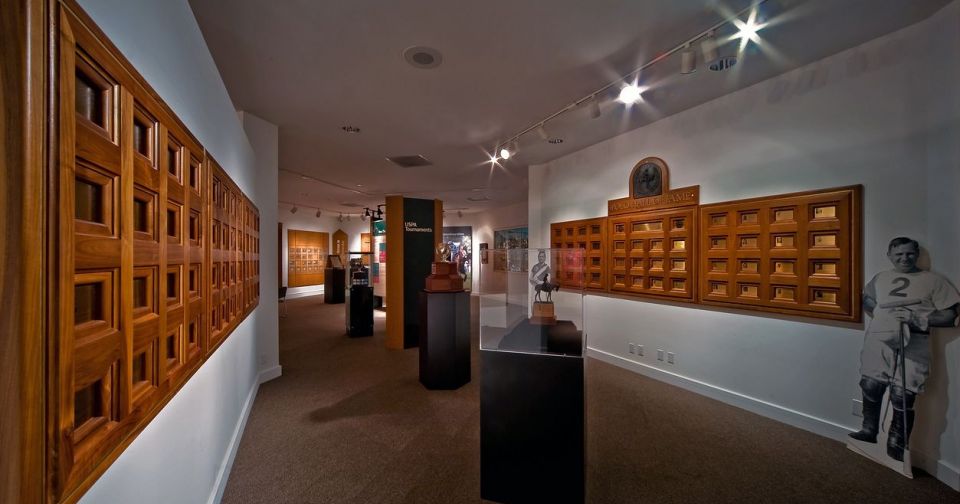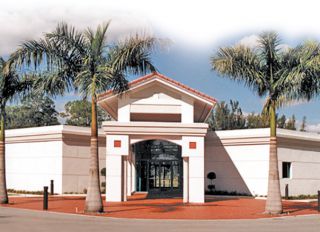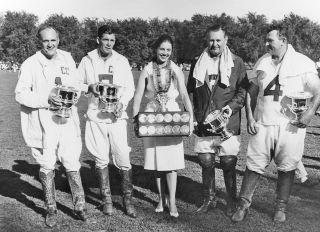Hall of Fame
Below you can search inductees by name, in alphabetical order, or by their year of induction, from 1990 to the present day, and read a short biography listing their accomplishments and contributions to the sport.

-
Rodolphe Agassiz2004
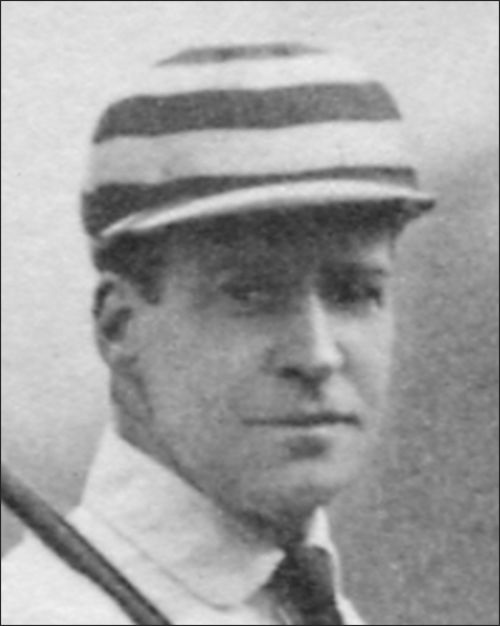 Inductee to the Polo Hall of Fame
Inductee to the Polo Hall of FameRodolphe Agassiz
Elected 2004In 1894, Rodolphe Louis Agassiz became one of the first 10-goalers in the United States, playing for Myopia Hunt Club where he generally played Back. He began playing at Harvard, class of 1892, and was a two-time winner of the Newport Tournament (1891 & ‘95), a major event in those days. He also won, twice, the Senior Championship (the most important competition before the advent of the U.S. Open) and the Championship and Added Cups. He represented the United States in the 1902 Westchester Cup at Hurlingham and retired from the game in 1912. He distinguished himself in the Boston business community and its charitable sector as well.

-
Mariano Aguerre2017
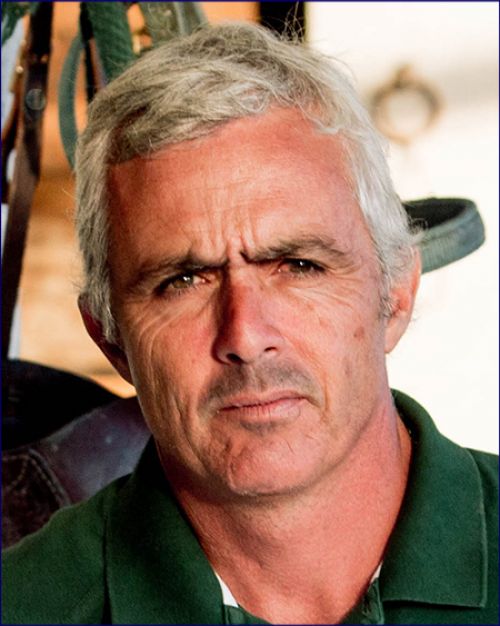 Inductee to the Polo Hall of Fame
Inductee to the Polo Hall of FameMariano Aguerre
Elected 201710-goal icon Mariano Aguerre made his indelible mark on American polo, arriving to Greenwich Polo Club at the age of 16 under Gonzalo Pieres' tutelage. He is one of the only left-handed players to reach the game's top handicap and continues to have an illustrious and long career most notably as the daring mainstay of the famed White Birch team, playing alongside Peter Brant for more than 30 years.

Mariano Aguerre on Machitos Crawford
playing at Greenwich Polo Club, 2015; photo by ChiChi Ubina
Aguerre has won some of the most prestigious tournaments among them the U.S. Open twice, eight Gold Cups and an array of international laurels as well establishing himself as the breeder of some of the most outstanding ponies in polo, including Hall of Famer Califa. Aguerre also gives back to the sport by mentoring aspiring young players around the country.

Mariano Aguerre, 2005 POLO Magazine cover
Photo top left by Juan Lamarca
-
Julio Arellano2021
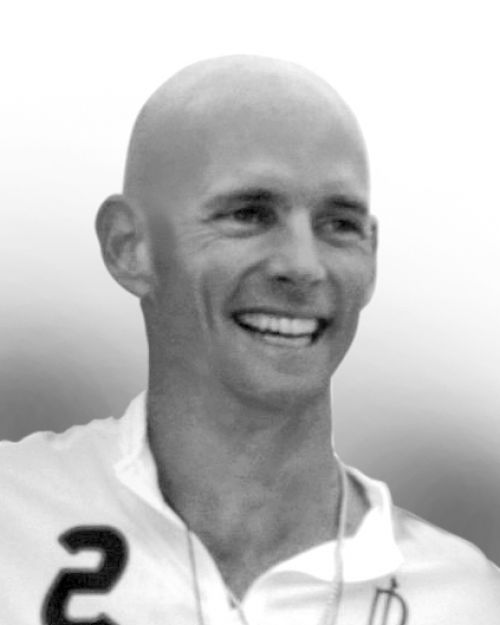 Inductee to the Polo Hall of Fame
Inductee to the Polo Hall of FameJulio Arellano
Elected 2021Growing up as a second-generation polo player in Wellington, Florida, Julio Arellano rose to stardom as an outstanding player and horseman; achieving 9 goals in 2003; and maintaining a 7-9 goal handicap for decades. He amassed enviable records that include three U.S. Open titles and the USPA's CV Whitney, Gold, Silver and Monty Waterbury Cups. Julio represented the United States in the legendary F.I.P. and Westchester International matches. His mares were chosen for the Best Playing Pony award of the U.S. Open in 2001, 2005 and 2010. A consummate sportsman, he coached numerous teams and mentored many aspiring men and women. Julio was elected to the USPA board of Governors, serving as a Governor-at-Large.
-
Lester (Red) Armour, III1999
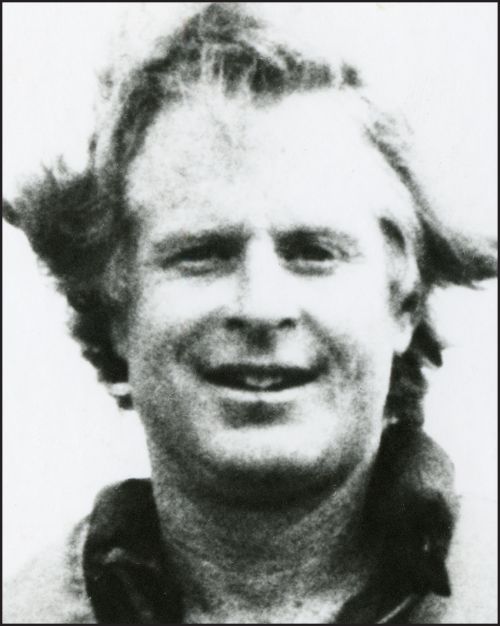 Inductee to the Polo Hall of Fame
Inductee to the Polo Hall of FameLester (Red) Armour, III
Elected 1999Heralding the second flowering of American polo, Lester "Red" Armour, III, rode mightily in the saddle, delighting the throngs of polo's new fans. An aggressive 9-goaler and powerful hitter, he anchored U.S.A.'s international teams in two Cup of the Americas, two victorious Camacho Cups, one heroically so, and a Coronation Cup.
Eager to help nurture a new generation of players and give to his sport, Red generously gave of his time, and took an active role in the USPA, including a Governorship and Chairmanship of the Handicap Committee. Always a serious contender, Red has a U.S. Handicap, two Gold Cups, three Silver Cups and a North American Cup to his credit, along with wins in countless other leagues and matches coast to coast.
-
Michael Azzaro2013
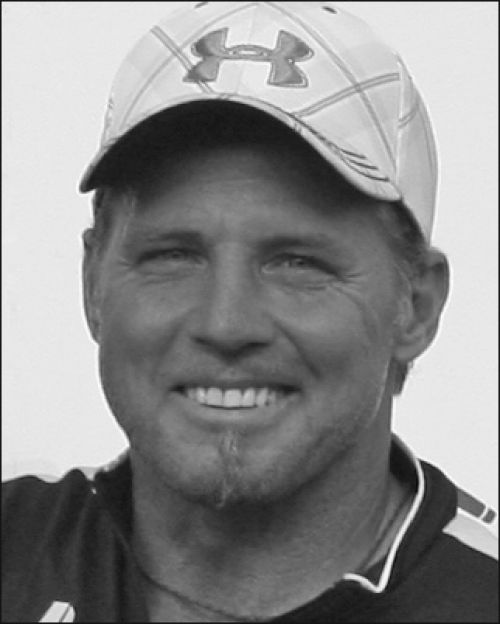 Inductee to the Polo Hall of Fame
Inductee to the Polo Hall of FameMichael Azzaro
Elected 2013In 1986 at the age of 21, young Mike Azzaro burst onto the national scene winning his first U.S. Open Championship and the Cartier International Open, followed by recognition in 1987 with the Polo Excellence Award for "Young Player of the Year," "Centennial Era Young Player" in 1990 and "Player of the Year" in 1994, the year he attained a 10-goal handicap and then held for fourteen years.
During his remarkable career, Mike won six U.S. Open Championships between 1986 and 2012, the Silver Cup three times, the Butler Handicap, the Iglehart Cup and the 30-Goal World Cup. He played on the winning U.S. team in the 1987 Coronation Cup and accumulated an impressive playing record in England and Argentina.

-
Gerald Matthews Balding2019
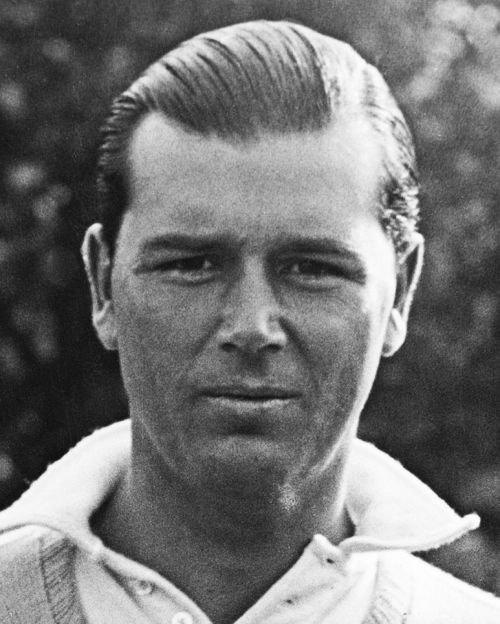 Inductee to the Polo Hall of Fame
Inductee to the Polo Hall of FameGerald Matthews Balding
Elected 2019After the first World War, the English-born Gerald Balding, then in his twenties, was invited by United States Polo Association President Robert Strawbridge to come to America “to train our boys how to play the game.” He made the trip and became an instructor for the Rumson Polo Club. He went on to become an internationally known standout during the Golden Age of Polo, rated 9 goals in the U.S. and 10 goals in England. As a player in America, he won the Junior Championship in 1928; the 1930 Hurlingham Champion Cup with the Hurricanes team; the U.S. Open in 1935 and 1936 with the mighty Greentree team; and the Monty Waterbury Cup in 1930 and 1935. In 1936, Balding represented America against Argentina in the Cup of the Americas.

Gerald Balding 2nd from right) with the Greentree team; 1936 U.S. Open winners; Tommy Hitchcock Jr., John Whitney and George Bostwick

Gerald Balding – 1930s

Gerald Balding (2nd from left) with the 1928 Silver Cup winning team (Brenda- please confirm that the trophy is the Silver Cup although in 1928 it was called the Twenty goal)
-
Harold A. (Joe) Barry1999
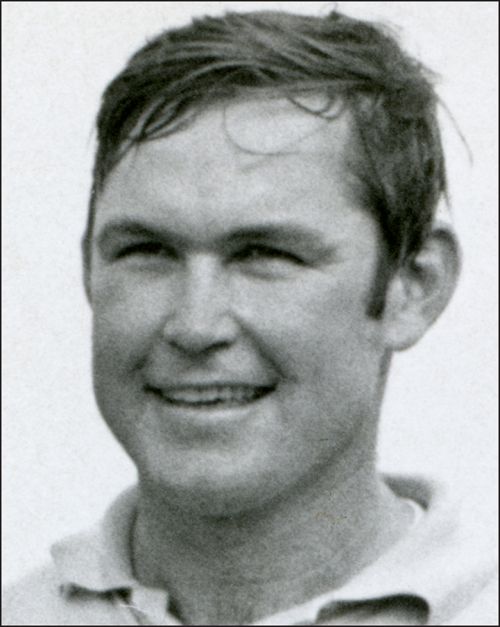 Inductee to the Polo Hall of Fame
Inductee to the Polo Hall of FameHarold A. (Joe) Barry
Elected 1999In the tradition of the Barry excellence, Harold "Joe" Barry, a galloping oak tree with the soul of a poet, took his place in the forefront of American polo. An impenetrable Back at 9-goals, no one could hit a longer ball or provide a more reliable presence.
Soft spoken off the field and ever the gentleman on the field, polo has no better role model than Joe. A horseman practically from birth, his talents with them are renowned - a chip off the old block. As an internationalist, he played twice on the U.S.A. squad in the Cup of the Americas, and brought home the Coronation and Camacho Cup trophies. Six U.S. Open Championships, three Gold Cups, three Silver Cups, two Butler Handicaps, and two North American titles bear witness to his awesome career.
-
Harold L. Barry1991
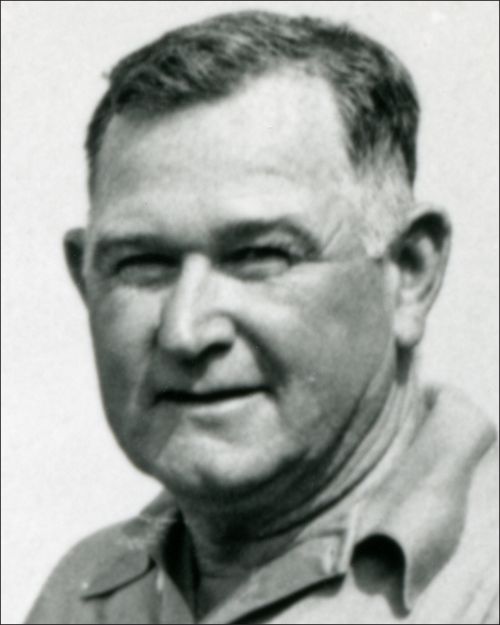 Inductee to the Polo Hall of Fame
Inductee to the Polo Hall of FameHarold L. Barry
Elected 1991Harold Barry was the youngest of four brothers in the first generation of this famous polo playing Texas family. His name first appeared in the records of the U.S. Polo Association in 1937 at zero goals; he was six goals in 1941 and achieved a nine-goal handicap in 1956.
Among his many trophies, some of the more notable were winning the U.S. Open Championship seven times, the National 20 Goal on four occasions and the prestigious Coronation Cup in England in 1971, '72, and '73. He played on the United States team against the Argentina team in 1966 and again in 1969.
Throughout his many years in polo, he, like other members of his family, has been known as an outstanding horseman and player and one of the longest hitters the game has produced.
-
Paul W. "Bill" Barry2006
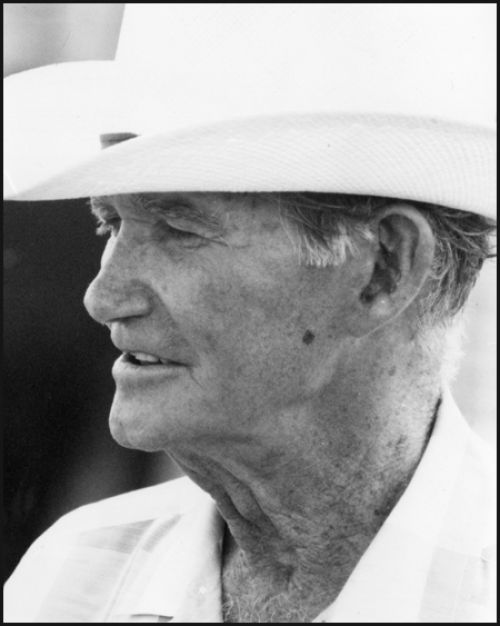 Inductee to the Polo Hall of Fame
Inductee to the Polo Hall of FamePaul W. "Bill" Barry
Elected 2006Bill Barry was a true horseman, and for more than six decades, generations of players from all over the country sought to be mounted on his exceptionally well-trained ponies. His superb mastery of the horse allowed Barry to maintain his 7-goal rating for five years, in 1948, '49, '55, '56 and '57.
Over the years, he played in numerous polo tournaments. Barry was on the victorious U.S.A. team in the 1946 Camacho Cup, and he went on to capture the 1955 U.S. Open Championship, the 1954 Butler Handicap, the 1954 National 20-Goal (Silver Cup) and the National 12-Goal in 1957.
Remembered as a true gentleman by those who knew him, he also influenced many aspiring polo players, to whom he was endearingly known as Uncle Bill.


-
Roy M. Barry1995
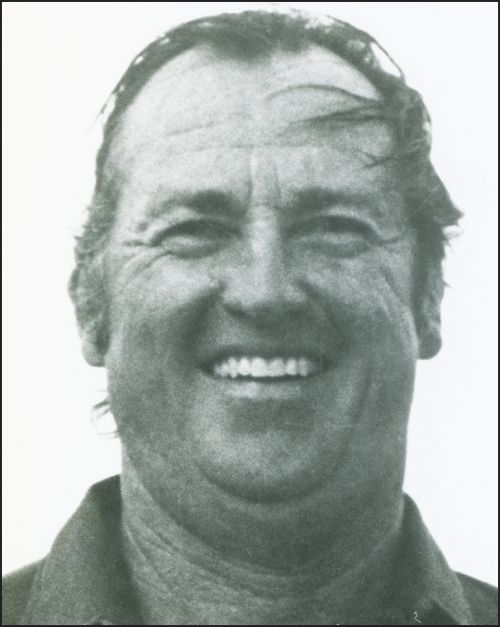 Inductee to the Polo Hall of Fame
Inductee to the Polo Hall of FameRoy M. Barry
Elected 1995Seemingly effortless talent is what Roy M. Barry always projected. While a 9-goaler, he, with but a few others, held the mantle of America's best. The Barry family was the First Family of U.S. polo for two decades, and Roy, more than any player of this time, personified the unique American style of polo in his day.
His shining moments were in representing his country twice in the Americas' Cup against the invincible Argentina, and two victories, playing number three, against Britain in the Coronation Cup. He was also part of the U.S. team against Mexico for the Camacho Cup. Roy's ability and composure under fire earned him, amongst others, three U.S. Open Championships, two Gold Cup and Butler Handicap titles each, as well as Twenty-Goal and North American Cup titles.
-
Carlton Beal1992
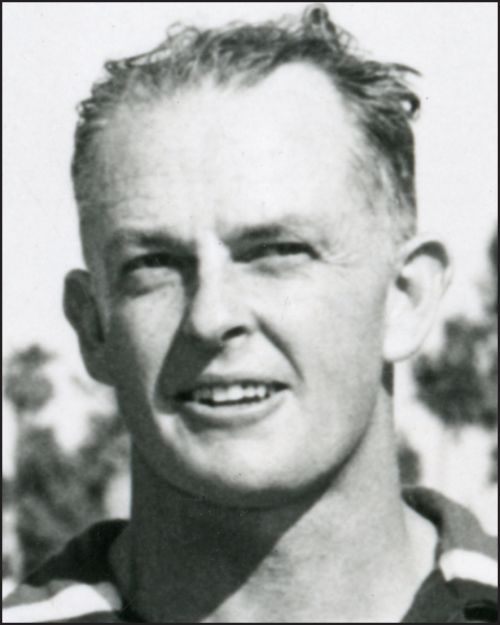 Inductee to the Polo Hall of Fame
Inductee to the Polo Hall of FameCarlton Beal
Elected 1992Carlton Beal represented four generations of his family in polo. He began polo on a bicycle and later in the 1930s under his father's guidance and the tutelage of Hugh Drury and Snowy Baker, at Menlo School and at Stanford. Highlights of his active career included the Monty Waterbury Cup in 1950 at Meadow Brook, the U.S. Open Championship in 1952 at the Beverly Hills Polo Club and in 1956, rated at 6-goals, the Intercircuit Cup with two of his sons at Oakbrook.
His playing career was matched by his devotion to every aspect of polo from club activities in California and Texas to governorship of the U.S. Polo Association, the Polo Training Foundation, and the Polo Museum.
-
James Gordon Bennett1992
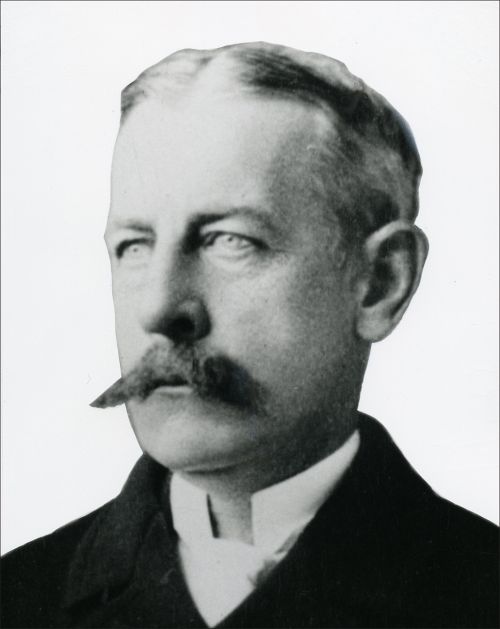 Inductee to the Polo Hall of Fame
Inductee to the Polo Hall of FameJames Gordon Bennett
Elected 1992James Gordon Bennett saw polo played in England and France and brought back to New York some equipment and a knowledge of the Hurlingham Club rules of play. He gathered an enthusiastic group of horsemen, sent to Texas for suitable ponies and established headquarters at Dickel's Riding Academy. The Westchester Polo Club was formed on March 6, 1876.
He purchased land, north of the city adjoining the Jerome Race Track, and the first game was played that May on the grass infield of the track itself. His playing career was short but his interest and sponsorship continued until polo was firmly established. The Polo Association, on his death in 1918, paid him tribute as the introducer of the game of polo to the United States.

James Gordon Bennett, Jr with a true polo "pony" circa 1870s
-
Robert D. Beveridge2006
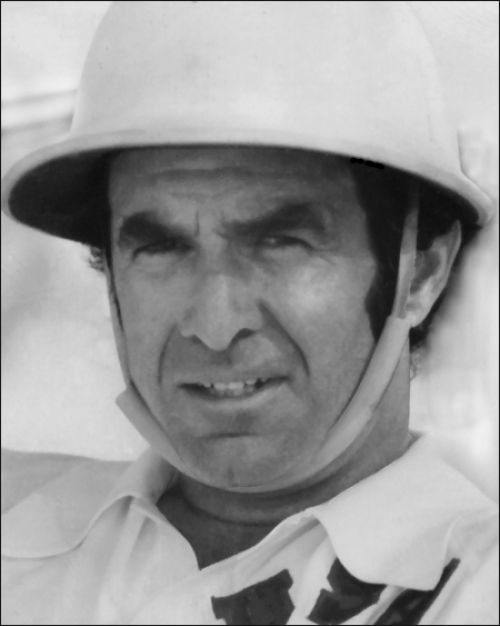 Inductee to the Polo Hall of Fame
Inductee to the Polo Hall of FameRobert D. Beveridge
Elected 2006Bob Beveridge played polo for 35 years and was the embodiment of the gentleman polo player. By the time he reached his 7-goal rating in 1967, he was considered one of the best amateur players in the game. He won many major tournaments, including the U.S. Open four times over a span of three decades: 1957, 1963, 1971 and 1973. He was always well-mounted, and one of his horses, Chips Royal, won the Hartman Trophy for the U.S. Open in 1973. His teams recorded titles in the 20-goal Silver Cup in 1954, 1960 and 1961; the Butler National Handicap in 1956, 1957 and 1977; the America Cup in 1966; the Chairman’s Cup in 1967 and 1968; and the Inter-Circuit in 1953, 1966 and 1968. Internationally, he played on the victorious Camacho Cup teams in 1974 and 1975, on the U.S.A. World 30-Goal team that played in Argentina in 1966, and won the Benson & Hedges tournament in South Africa in 1974. In addition, he was governor of the United States Polo Association’s Southwest Circuit and served for many years on numerous USPA committees, including as chairman of the Handicap Committee.

-
Thomas J. Biddle Jr.2022
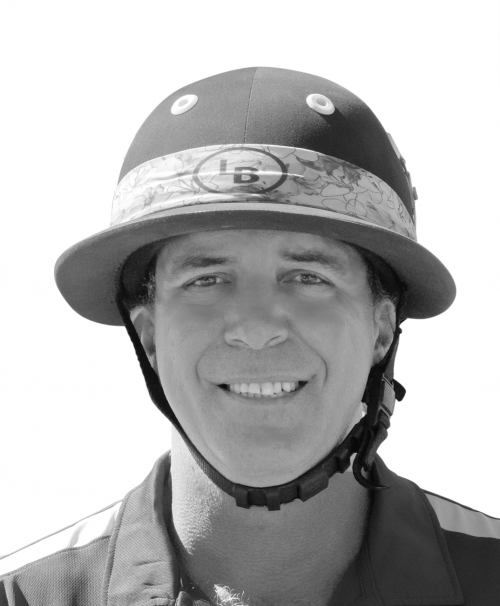 Inductee to the Polo Hall of Fame
Inductee to the Polo Hall of FameThomas J. Biddle Jr.
Elected 2022Born into a polo family, Tommy Biddle grew up in Aiken, South Carolina. At the age of 12, he played in his first game and turned pro at 18. At 6’3”, with a football player’s build, his presence on the field looms large, literally and figuratively. Once called “the quickest big man to ever play in the sport,” Biddle is a rare player who has achieved greatness in both genres of polo: outdoor and arena. He became the fourth in arena history to achieve a 10-goal handicap, while also maintaining an 8-goal outdoor rating. His list of accolades includes the 2002 U.S. Open, four Monty Waterbury Cups, four Townsend Cups and a U.S. Open Arena championship. Adding to his accomplishments, Biddle has become a well-respected umpire, with USPA Umpires, LLC, certification.

-
Elmer Boeseke1999
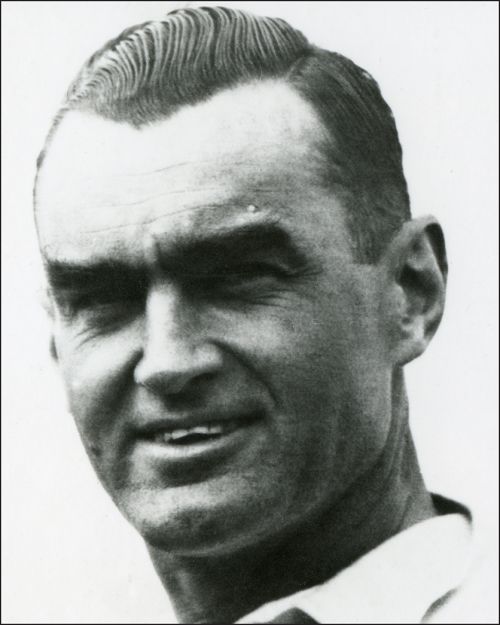 Inductee to the Polo Hall of Fame
Inductee to the Polo Hall of FameElmer Boeseke
Elected 1999The right man at the right time, Elmer Boeseke, Jr. was as tough as he was tall. Versatile in all four positions, his performance in the forever famed 1933 East-West duel was crucial to the West's victory and its newfound respect in polo. That memorable achievement also earned him a 10-goal rating in a single jump from 8-goals.
One of only three 10-goalers in his day, he played on the victorious U.S.A. squad in 1932 which won both the Cup of the Americas and the Argentine Open, a feat not realized since. He had a U.S. Open Championship to his credit, a Monty Waterbury trophy and countless other honors in Pacific Coast tournaments.

Elmer Boeseke with Clarence
-
George H. Bostwick1996
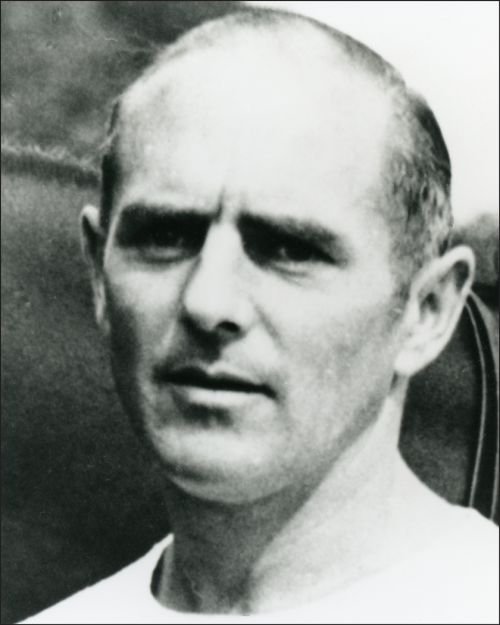 Inductee to the Polo Hall of Fame
Inductee to the Polo Hall of FameGeorge H. Bostwick
Elected 1996Versatility was George H. "Pete" Bostwick's middle name. When not playing as a fast and slippery forward, he might have well been astride a world class steeplechase horse or negotiating obstacles in the show ring. Horses were his life to his very last day and he wouldn't have had it any other way.
His roots were at the famed Aiken Preparatory School and his talents attested to an 8-goal rating and a place of honor in the Racing Hall of Fame. He was a man of great initiative, too. "Polo for the Public" was his motto at the Bostwick Field on Long Island, and polo for a purse was also inaugurated there. A much respected internationalist who represented the flag in the playing of the Cup of the Americas, Pete's name is engraved six times on the U.S. Open Championship trophy and numerous others, too.
-
Norman Brinker1998
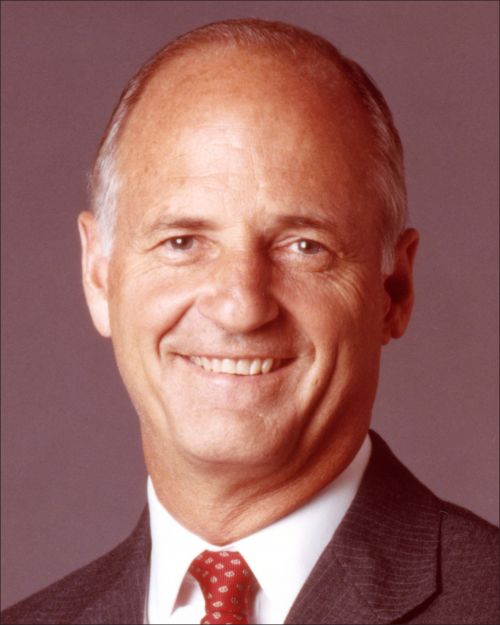 Inductee to the Polo Hall of Fame
Inductee to the Polo Hall of FameNorman Brinker
Elected 1998The spirit of the competitor and the heart of the civic-minded add up to the eminence of Norman Brinker. For all the pleasure he derived from the game, he gave back doubly to it.
As a tireless worker for the sport, as the force behind the innovative Willow Bend Polo club, his presence was reassuringly felt, his counsel sought. On his watch as the USPA's chairman, U.S.A. again challenged Argentina for the Cup of the Americas, and American polo became the epicenter of world polo. His achievements as a worthy amateur player are no less considerable: a U.S. Open Championship, four Silver Cup titles, a circuit championship, many league titles, as well as Polo Magazine's Amateur Player of the Year.
-
Paul Butler1995
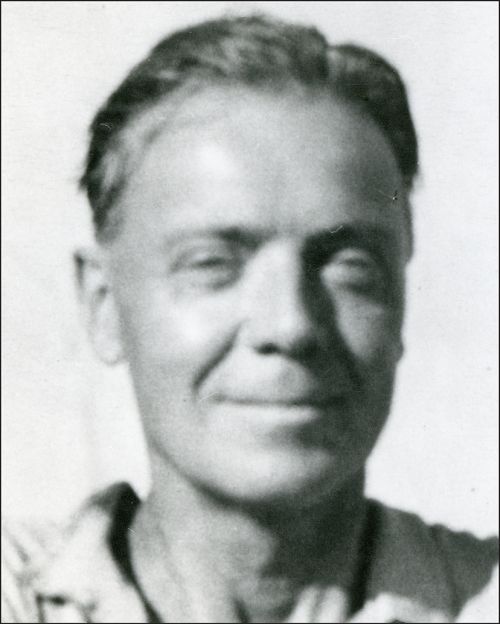 Inductee to the Polo Hall of Fame
Inductee to the Polo Hall of FamePaul Butler
Elected 1995If polo was ever in need of an angel, it was at the time when Paul Butler gave a beleaguered postwar sport a lavish new center and a home for the U.S. Open Championship. Generously, with flair and vision, he nurtured a recovering sport until others could carry the torch.
His contributions to American polo through Oak Brook Polo Club were complemented by long service to the USPA, where he brought his enthusiasm in selfless service for nearly three decades. Paul Butler's zeal on the polo field was just as keen. Several Twelve-Goal Championships are to his credit, and international matches, too. He also sponsored powerful teams, which earned six U.S. Open and four Butler Handicap titles, honoring his name.
-
Delmar Carroll2003
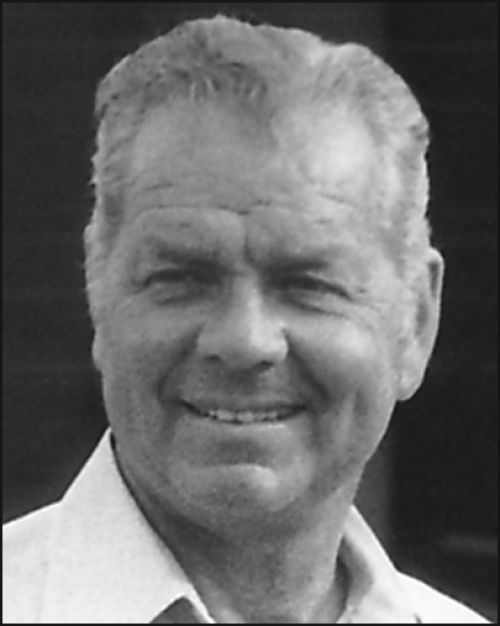 Inductee to the Polo Hall of Fame
Inductee to the Polo Hall of FameDelmar Carroll
Elected 2003Delmar (Del) Carroll was considered one of the greatest offensive players of his era, earning him the nickname "Mr. Speed." One of his most remarkable talents was the ability to take the ball the length of the field and score, making him a real spectator favorite. Del was first rated 8-goals in 1949 and held the distinction for 10 consecutive years. He attained a 9-goal rating in the Arena.
During his 44 years of polo, Del Carroll played in nearly every major tournament, winning U.S. Open titles in three different decades - 1959, 1967 and 1974. His teams won the 1948 Senior Championship as well as the 1939 National 12 Goal. In 1950 he was selected for the USA team and participated in the 40 Goal Cup of the Americas. In 1973 he won both the National 20 Goal and the National 16 Goal. He was a renowned horseman and one of the first players in America to selectively breed thoroughbred horses for polo prospects. His legendary polo pony, Magazin, sired many horses still competing in the game today.


-
Joey Casey2020
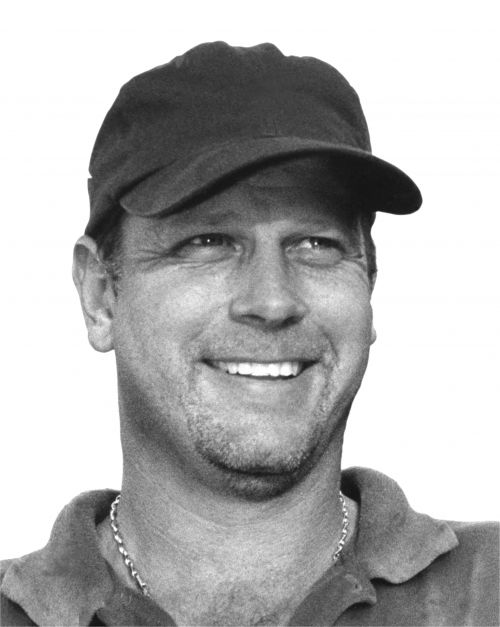 Inductee to the Polo Hall of Fame
Inductee to the Polo Hall of FameJoey Casey
Elected 2020A world-class polo player, Joey Casey is well respected as a polo pony breeder and trainer of exceptional horses for the sport. A third-generation horseman, he attained a 7-goal handicap and competed in many numerous high-profile events as a sought-after professional player. His list of major tournament wins include the 1988 Westchester Cup, USPA Sunshine League Championship (6 times), International Gold Cup, USPA CV Whitney, USPA Gold Cup, Pacific Coast Open and many more. For more than 20 years, Casey was polo manager for the iconic Royal Palm Polo Sports Club. He founded the Palm City Polo Cub in south Florida to provide arena and outdoor polo training, mentoring for novice players, and affordable, low- and medium-goal competition.


-
Dr. Clarence C. "Buddy" Combs Jr.1992
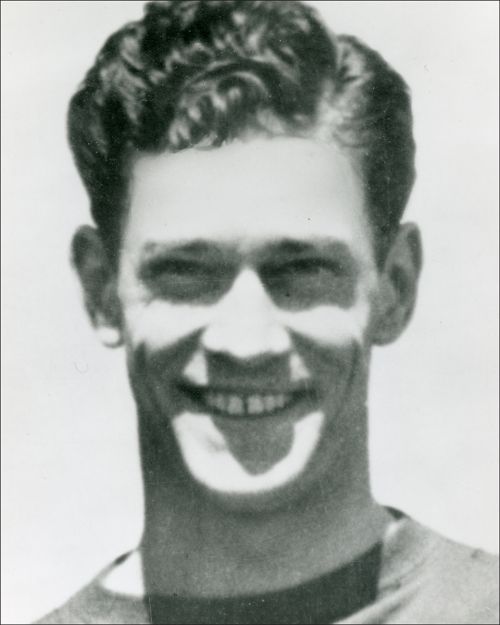 Inductee to the Polo Hall of Fame
Inductee to the Polo Hall of FameDr. Clarence C. "Buddy" Combs Jr.
Elected 1992Clarence C. “Buddy” Combs Jr. inherited his interest in horses and polo from his father. He developed his skills at the Pennsylvania Military Academy and won the Intercollegiate Championship at Cornell in 1937 while he attended its veterinary school. He became, in 1951, the second of only two players in the first 75 years of indoor polo records to be rated at 10-goals.
During his indoor career, he won the Senior Championship seven times and the Twelve Goal (Junior) on three occasions. Outdoors, "Buddy" won the U.S. Open Championship in 1947 and ‘56, the Monty Waterbury Cup twice, the Twelve Goal once. He was a very intense, skillful and hard-riding player.
-
Alan L. Corey, Jr.1992
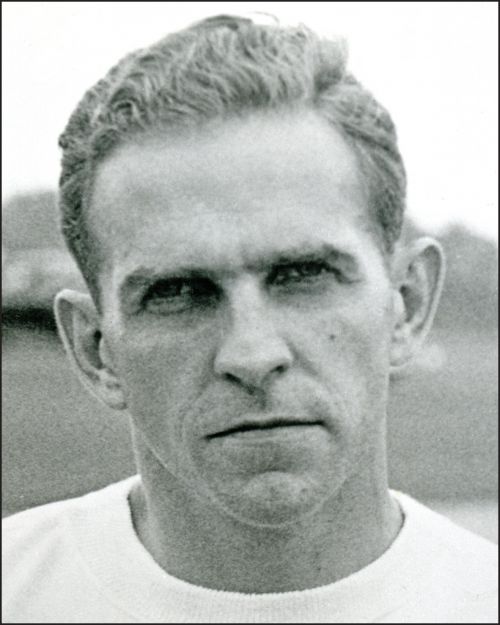 Inductee to the Polo Hall of Fame
Inductee to the Polo Hall of FameAlan L. Corey, Jr.
Elected 1992Alan Corey was an outstanding polo player known for his tactical skill and horsemanship. He began playing as a student at Aiken School in South Carolina in 1930 and later at Yale, winning the Intercollegiate Championship in 1938.
Among his many accomplishments were winning the U.S. Open Championship and the Monty Waterbury Cup, each on five occasions, and the National Twenty Goal four times. He was awarded a 9-goal handicap in 1953 and maintained a rating of 7-goals or more for 30 years. He won the National Twelve Goal Tournament in 1963 with his son Alan, and reached the finals of the National Sixteen Goal with his younger son, Russell, in 1969. For many years, he served the U.S. Polo Association plus the Meadow Brook and Aiken polo clubs.
-
John E. Cowdin2007
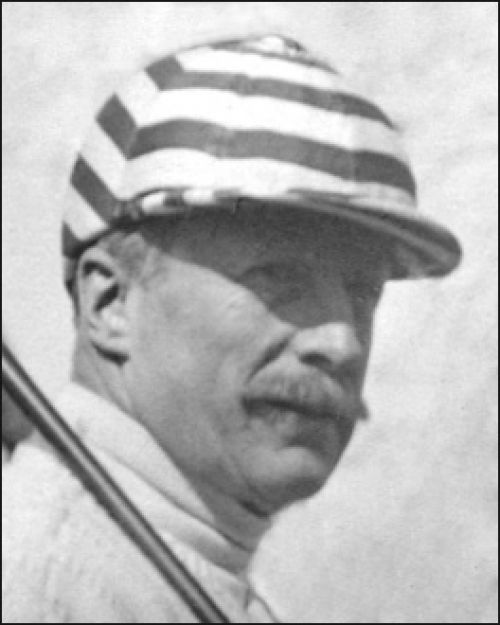 Inductee to the Polo Hall of Fame
Inductee to the Polo Hall of FameJohn E. Cowdin
Elected 2007A player with the famed Rockaway Club, John E. Cowdin achieved a 10-goal handicap in 1894. Cowdin played on the American team in the 1902 Westchester Cup series and was a winner of the first U.S. Open Championship in 1904 with the Wanderers.
His other titles included the Association and Added Cups, the Governor's Challenge Cup and the Senior Championship in 1896, 1899, 1902 and 1903.
In 1890, when the U.S. Polo Association was first organized, he was an original committee member.
Playing with and rated on a par with the likes of Foxhall Keene, he was regarded as a formidable "great" of his era. According to some, he and his Meadow Brook team so dominated and surpassed all other players and teams at that time that the handicap system, introduced in 1888, was said to have been found necessary and desirable largely on account of his and his team's unrivaled superiority.

-
Fred W. Dailey1997
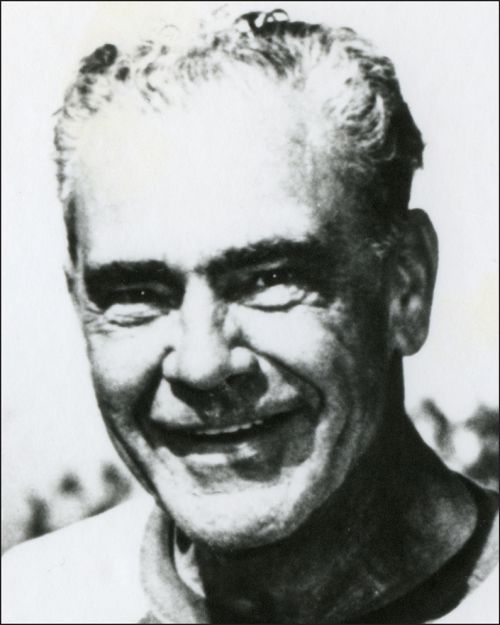 Inductee to the Polo Hall of Fame
Inductee to the Polo Hall of FameFred W. Dailey
Elected 1997The ultimate goodwill ambassador, Fred Dailey required no prodding as he represented, with charm and dignity, the best of American polo. A gentle man in a rough-and-tumble sport, he played with zeal on the field, and gave and gave off the field. No effort was too great.
His most prominent contribution was the revival of polo in Hawaii, with which he was synonymous. His legacy, however, knows no boundaries. Through his manner and actions, he was an inspiration to clubs and players everywhere.
As guardian of the sport, as a selfless worker for the USPA, as a club owner, as an exemplary amateur and as a friend, he earned a place of honor in the annals of polo.
-
Bart Evans2001
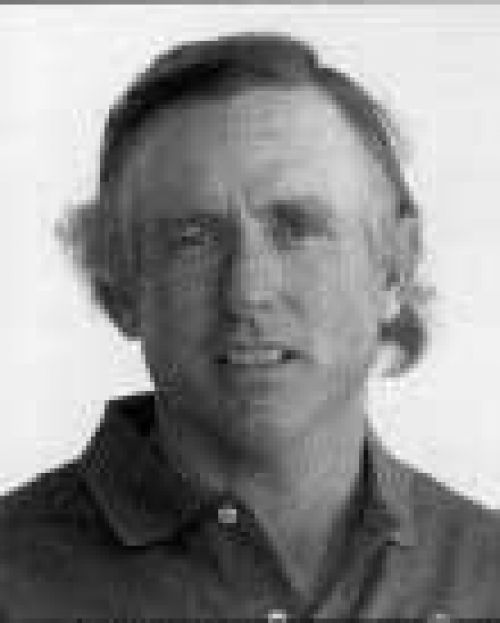 Inductee to the Polo Hall of Fame
Inductee to the Polo Hall of FameBart Evans
Elected 2001As horseman, trainer, breeder and player, Bart Evans' success came "by the bootstraps." At the age of 18, while riding and roping at Mackie's Arena in Kansas City, he first saw polo being played. He taught himself, through trial and error, to hit the ball, and went on to play in college.
Bart became one of the best, earning an 8-goal handicap in 1976. He won the 1983 U.S. Open Championship, and three U.S. Handicap C.V. Whitney Cup and Butler Handicap titles each. He won a Monty Waterbury Cup, the Cup of the Americas, and the 1993 Silver Cup. Bart's team also won the Pacific Coast Open and the International Gold Cup.
He represented the U.S. in the 1988 Westchester Cup win against Australasia and twice won World Cup Championships.
-
Hector Galindo2016
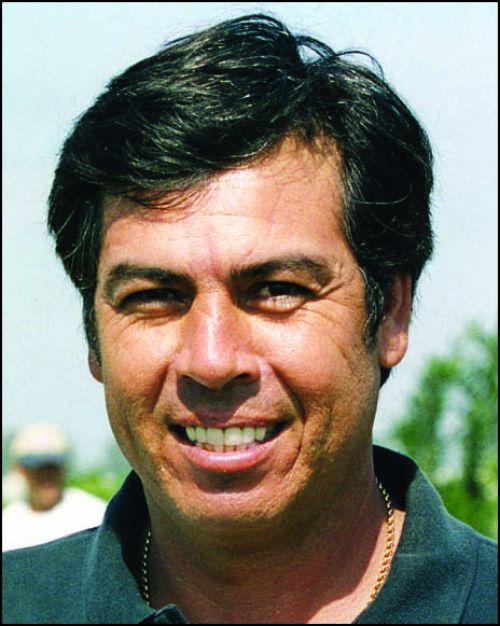 Inductee to the Polo Hall of Fame
Inductee to the Polo Hall of FameHector Galindo
Elected 2016 Maintaining his status as a top player for over 25 years, Hector Galindo started playing at the age of 12 and climbed quickly to his pinnacle as a 9-goal player. He has raised the winning trophies of numerous major American tournaments that include the 30-goal World Cup, the Silver Cup four times, 26-goal Hall of Fame Cup, C. V. Whitney and was a winner of the Polo Excellence Award in 1999. Although aggressive and fast on the field his good nature and consummate sportsmanship have endeared him to his fellow players and fans, not just in the U.S. but around the globe. Part of a large polo playing family, Hector credits his father and brothers as his mentors and said that they taught him to “train hard, play the game fairly and take good care of my horses.”
Maintaining his status as a top player for over 25 years, Hector Galindo started playing at the age of 12 and climbed quickly to his pinnacle as a 9-goal player. He has raised the winning trophies of numerous major American tournaments that include the 30-goal World Cup, the Silver Cup four times, 26-goal Hall of Fame Cup, C. V. Whitney and was a winner of the Polo Excellence Award in 1999. Although aggressive and fast on the field his good nature and consummate sportsmanship have endeared him to his fellow players and fans, not just in the U.S. but around the globe. Part of a large polo playing family, Hector credits his father and brothers as his mentors and said that they taught him to “train hard, play the game fairly and take good care of my horses.”
-
Elbridge T. Gerry, Sr.1991
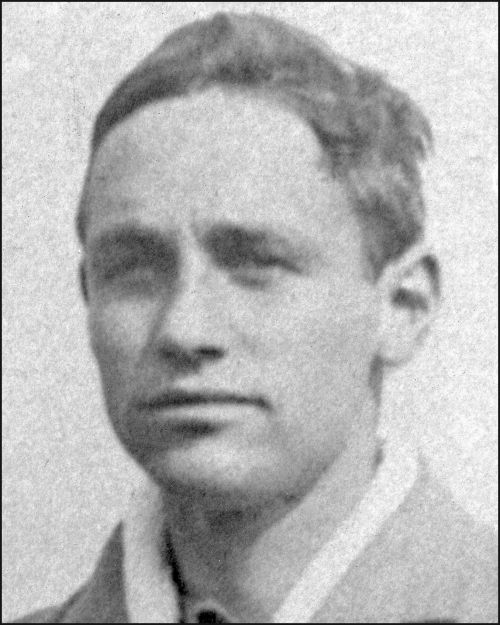 Inductee to the Polo Hall of Fame
Inductee to the Polo Hall of FameElbridge T. Gerry, Sr.
Elected 1991Elbridge Gerry played polo at school in Aiken and with the Meadow Larks, both under the tutelage of Mrs. Thomas Hitchcock, Sr., and with the Old Aiken team. He won the Indoor Intercollegiate Championship in 1929.
His outdoor victories included the U.S. Open Championship and the Monty Waterbury Cup, each three times, the National Twenty Goal twice, and with the "Old Aiken" versus the Argentine "Santa Paula" team in 1931. He went to England with the American Team in 1936, was captain of the Aknusti Team, and achieved a 9-goal handicap in 1940. Actively involved in the U.S. Polo Association, he became its Chairman in 1940.
He was an outstanding and versatile position player as well as an unselfish and enduring sportsman.

Elbridge Gerry, Sr. holding the 1928 Monty Waterbury Cup

Wm. Post, II, E.T. Gerry, Sr., R.L. Gerry, Jr., F.S. "Skiddy" von Stade
circa 1930s
-
Daniel Gonzalez2019
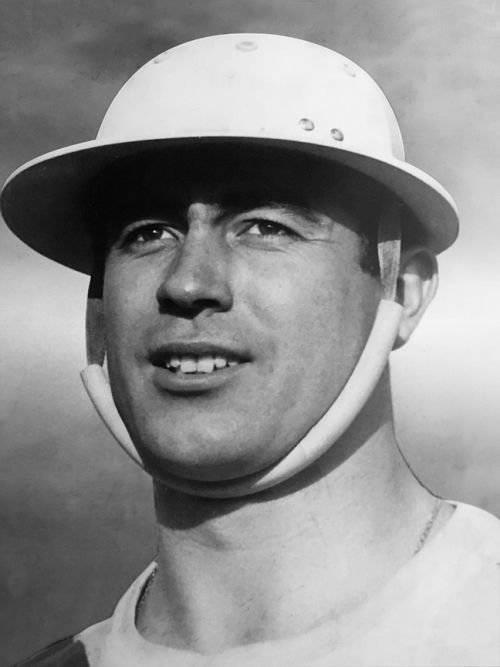 Inductee to the Polo Hall of Fame
Inductee to the Polo Hall of FameDaniel Gonzalez
Elected 2019As part of the American polo scene for over 35 years, Daniel Gonzalez is widely known both as a player and a coach. A 9-goaler in the U.S. and rated 10 in Argentina, he won every high goal tournament played on the Pacific Coast, including the Pacific Coast Open and Butler Handicap. Gonzalez’s international record is astounding, with his having won major tournaments in England and France, and the most important Argentine tournaments, including seven Argentine Opens between 1961 and 1973. With his enthusiastic dedication to coaching, Gonzalez has brought players and teams to California to play for 39 consecutive years. His knowledge and expertise have influenced countless young, aspiring polo players.

Daniel Gonzalez accepting an award for the 1969 Queen’s Cup in Windsor, England

Daniel Gonzalez on Alpargata, “the best polo pony ever ridden in my life,” 1973 Argentine Open

Daniel Gonzalez (2nd from right) with the Gehache team, winners of the 1986 Pacific Coast Open
-
Stephen M. Gose1997
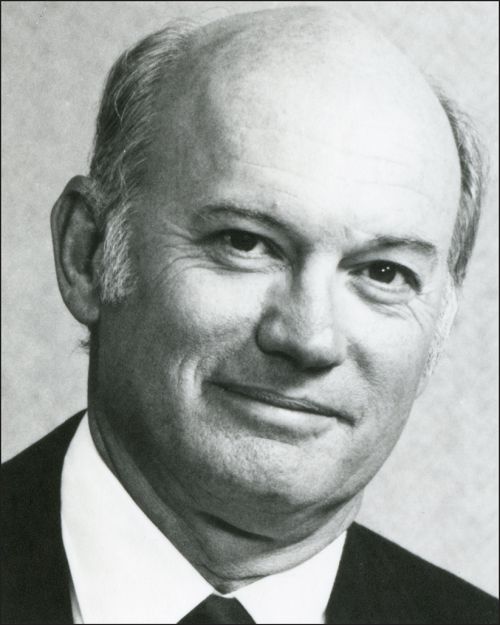 Inductee to the Polo Hall of Fame
Inductee to the Polo Hall of FameStephen M. Gose
Elected 1997Any sport would judge itself fortunate to have a friend like Stephen Gose, even once in a generation. An amateur who epitomized sportsmanship, he fielded numerous U.S. Open teams, built Retama Center, the largest polo club in its day, and single-handedly, with labor, funds and horses, made the dream of another Cup of the Americas a memorable reality.
For Steve, polo was a family affair and indeed, all who came into his presence felt like family. A superbly mounted and eager competitor, he no less equated winning with seeing others prosper. Three U.S. Open Championships, two Gold Cup and three Silver Cup titles, along with the Chairman and Inter-Circuit among other titles, merely cap the eternal gratitude that polo owes him.
-
Carlos Gracida2012
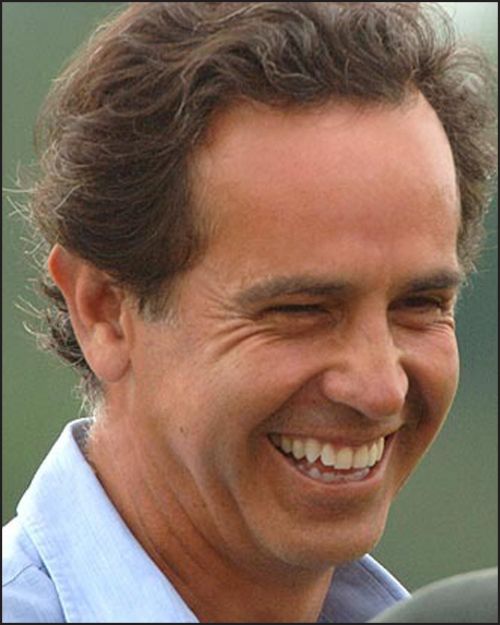 Inductee to the Polo Hall of Fame
Inductee to the Polo Hall of FameCarlos Gracida
Elected 2012Born in 1960, Carlos began playing in tournaments at 14 and reached a 10-goal handicap in 1985, a ranking he held for 15 years. He was a dominating force with an amazing record of wins that included the U.S Open in 1982, ‘84, ‘85, ’87, ’88, ’91, ’92, ’94 and 2003, the C. V. Whitney in 1997, 2001 and ‘04, the USPA Gold Cup in 1980, the Silver Cup in 1980 and ‘81; the 1998 Monty Waterbury Cup, and the World, North American, Chairman’s, Inter-Circuit and Barrantes cups. He also amassed an enviable international record, winning tournaments in England, France, Mexico and Argentina.
Carlos Gracida was the only player to win the American, Argentine and British Open Championships in the same year. And he did it three times.
An international star and a true great, he was taken from the world of polo too soon in an accident on the polo field in 2014.


-
Guillermo “Memo” Gracida, Jr.1997
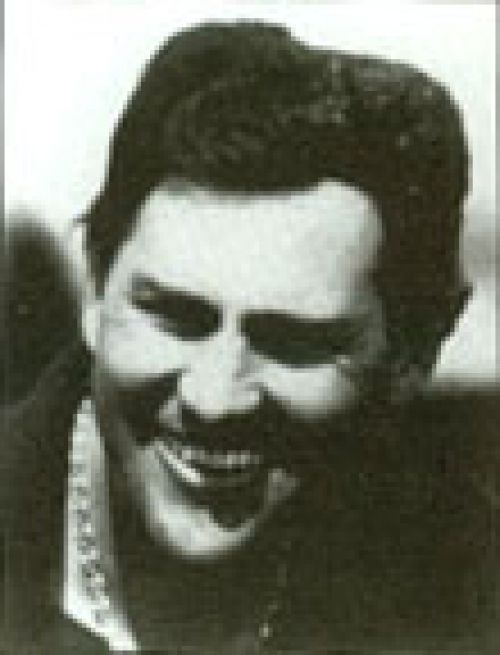 Inductee to the Polo Hall of Fame
Inductee to the Polo Hall of FameGuillermo “Memo” Gracida, Jr.
Elected 1997Exploding onto American polo as a young man, Guillermo "Memo" Gracida, Jr., has been a star ever since. In his prime, he was 10-goals from head to toe; in his path, the record book crumbled. East or West and across the Atlantic, he was the one to beat, the benchmark for all who seek polo immortality.
The quintessential number three, a superlative horseman, he was a five-star field general: ever prepared, always inspiring his players' best. He could deliver heroics, but team polo was his winning formula.
His record leaves one breathless. Fourteen U.S. Open Championships with three Gold Cup, five World Cup, and four Pacific Open Championships offer a hint of his ability, along with a proud 1980 Cup of the Americas, numerous MVPs and three Polo Magazine Player of the Year Awards.


-
Ruben Gracida2018
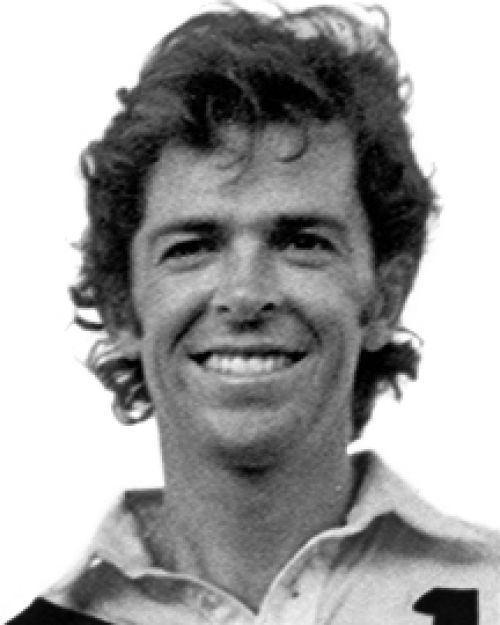 Inductee to the Polo Hall of Fame
Inductee to the Polo Hall of FameRuben Gracida
Elected 2018While watching polo in Santa Barbara in 1976, young Ruben Gracida was offered a job to play. Not having played for some time, he began his professional career at 3 goals but went to 5 in a matter of months. As he experienced increasing success, he made the U.S. his home. He worked hard and racked up a long list of impressive wins making a name for himself as a tough competitor and an influential figure on the American polo scene, rapidly rising to 8 goals. His outstanding playing record includes winning the U.S. Open Championship four times and its MVP in 1983, the Pacific Coast Open 3 times, the ’83 International Gold Cup, the Avilo Camacho Cup in 1981 and ’88, and in England, back-to-back Coronation Cups in 1985 and ’86 along with numerous other national and international tournament victories.


-
Raymond Guest2006
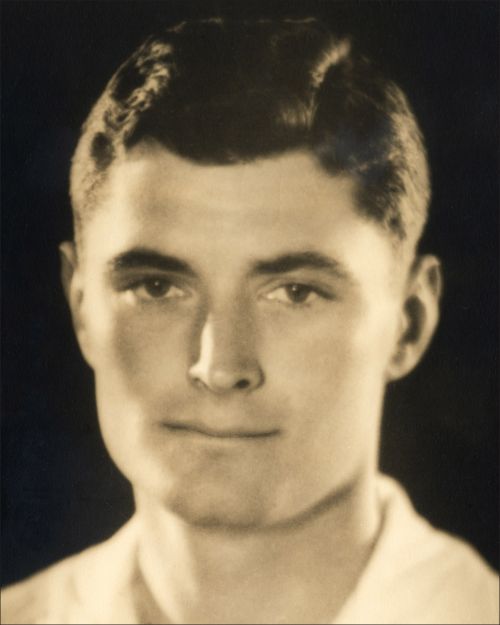 Inductee to the Polo Hall of Fame
Inductee to the Polo Hall of FameRaymond Guest
Elected 2006Raymond Guest played in the Golden Age of Polo, when the best players in the world were amateurs competing for honor, glory and a good bit of fun. He, along with his brother, Winston Guest, competed and excelled in all of the major high-goal events of the pre-World War II era. A perennial all-star in both the arena and the outdoor versions of the sport, he first achieved an 8-goal outdoor handicap in 1933 playing for the Meadow Brook Polo Club. As part of the famed Templeton team, he won the U.S. Open in 1932 and ‘34 and the Monty Waterbury in 1931 and ‘34. His defensive skills were legendary, and he was accorded the honor of playing Back for the East team in the famous 1933 East-West series.

-
Winston F. C. Guest1991
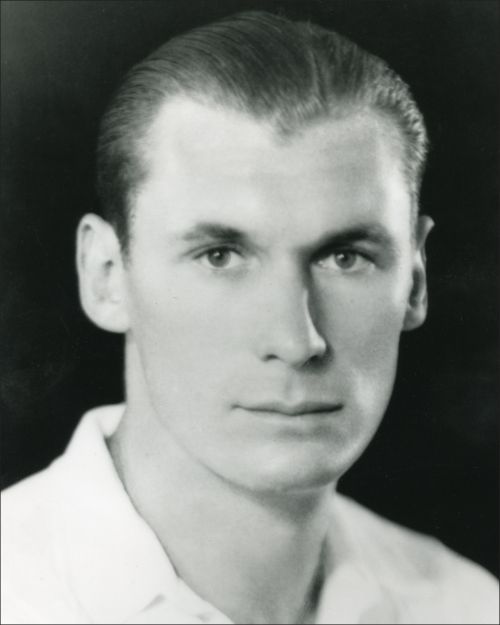 Inductee to the Polo Hall of Fame
Inductee to the Polo Hall of FameWinston F. C. Guest
Elected 1991Winston Guest started his polo career at an early age and continued at Yale winning the Intercollegiate Championship in 1926. He won the U.S. Open three times, the National Twenty Goal, and was a four-time winner of the U.S. Indoor Open. He represented America against England in 1930, '36 and '39, versus Argentina in '28 and '32, and against Mexico in 1941. He won the Argentine Open in 1932. He was first rated at 9-goals in 1929 and that same year became the first indoor player ever to earn a 10-goal handicap. Strong and versatile, he had the distinction of playing all four positions on the field in national and international matches.
-
Bennie Gutierrez2003
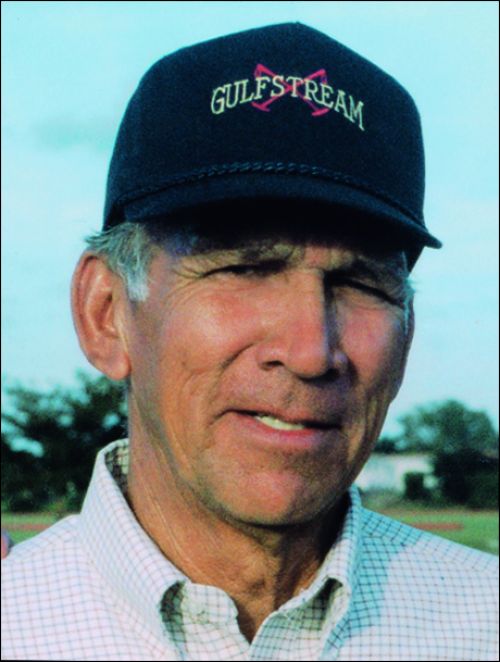 Inductee to the Polo Hall of Fame
Inductee to the Polo Hall of FameBennie Gutierrez
Elected 2003During the 1960s and 70s, Bennie Gutierrez was one of the highest rated players. He attained an 8-goal handicap in 1968 in an era with no American 10-goal players. A consummate horseman, he was respected for his consistency, mallet work and competitiveness.
A sought-after teammate, his titles included the 1972 U.S. Open Championship, the 1960 and ‘67 National Twenty Goal, the 1967, ‘69 and ‘71 National Sixteen Goal. When the USA sent its best to Argentina for the 1969 Cup of the Americas, Bennie was selected and played with distinction.
Bennie continued his in polo, training exceptional ponies and managing high-goal polo teams. He helped organize the professional umpiring program, served as the USPA’s first Chief Umpire and was honored in 1993 as the Umpire of the Year.


-
George Haas Jr.2002
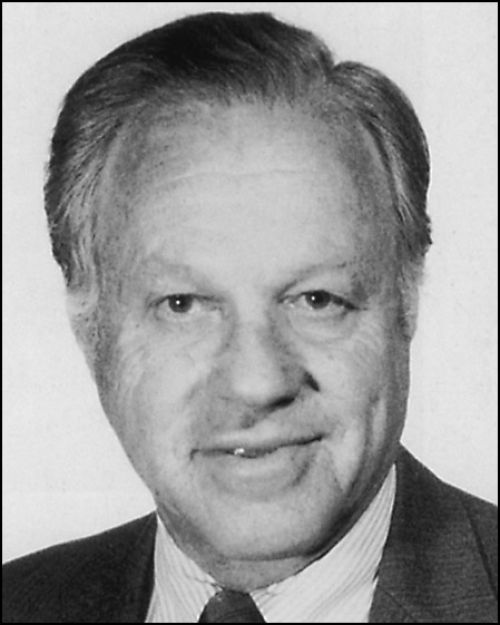 Inductee to the Polo Hall of Fame
Inductee to the Polo Hall of FameGeorge Haas Jr.
Elected 2002George Haas won his first trophy at Yale in 1938 and for the next 62 years competed and won club and high-goal tournaments including the East Coast Open, three times, the Monty Waterbury, three times, and the Arena Sherman Memorial. He was a chairman of the Polo Training Foundation, of the USPA's Safety and International Committees, and served as a long-term governor of the Northeastern Circuit . He was also a president of the Gulfstream Club where he was always unselfishly ready to assist any worthy polo cause. Among Haas' proudest achievements were his determined work in developing a new and improved safety helmet and representing the interests of the United States in the organization and development of the Federation of International Polo.
-
Sunset "Sunny" Hale2018
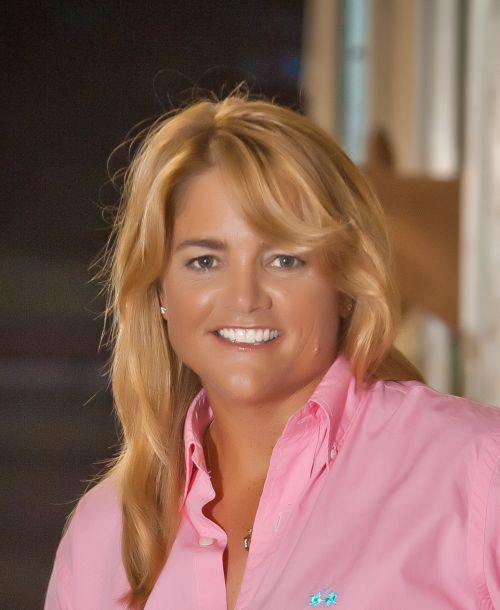 Inductee to the Polo Hall of Fame
Inductee to the Polo Hall of FameSunset "Sunny" Hale
Elected 2018Sunny Hale’s contributions to the sport were multi-faceted and her accomplishments astounding. Reaching a 5-goal handicap in a male dominated sport, she also made history as the first woman to win the U.S. Open Championship. Breaking down barriers for women, she played professionally on teams with the world’s greatest male players for over 20 seasons. And just as importantly, she constantly gave back to the sport she loved. She will be remembered in uncountable ways: as an extraordinary player, exemplary horseman, a founder of organizations, a teacher, a coach, a creator of opportunities and dynamic advocate for anyone who needed her help. Her passion to share her knowledge with others endeared her around the globe, and she is regarded as the most influential woman in polo of our time.

-
Jeffrey Stuart Hall2023
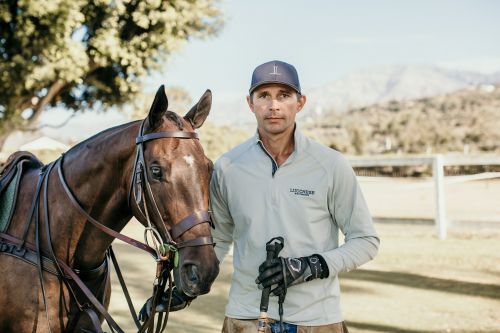 Inductee to the Polo Hall of Fame
Inductee to the Polo Hall of FameJeffrey Stuart Hall
Elected 2023One of the most accomplished American players in recent history, Jeff Hall has won virtually every major U.S. tournament and reached an 8-goal handicap. He is a 10-time winner and record-holder for most wins of the USPA Silver Cup, his first in 1997 and his tenth in 2022. Known for his aggressive style riding top ponies, Hall has also won the 2003 U.S. Open, the 2020 USPA Gold Cup, the 20-goal Ylivsaker Cup four times and the Pacific Coast Open twice, as well as many other high-goal tournaments. Hall represented the United States in international matches as a member of the 1998 14-Goal World Championship, and the 2009 and 2018 Westchester Cup teams.
-
W. Averell Harriman2008
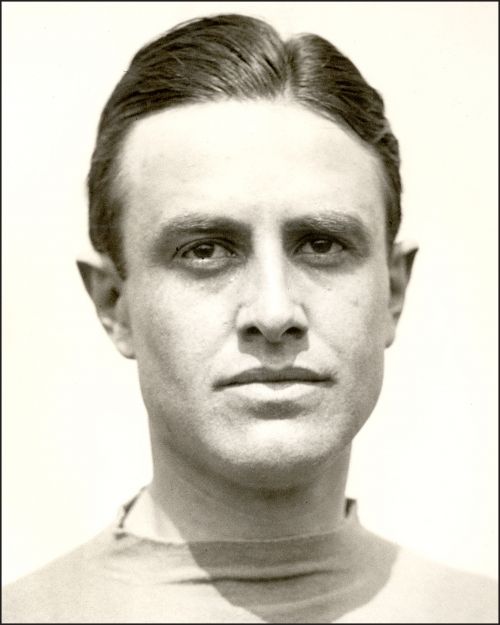 Inductee to the Polo Hall of Fame
Inductee to the Polo Hall of FameW. Averell Harriman
Elected 2008A player, banker, businessman and statesman, Harriman inherited a $100 million railroad fortune. He began his polo career with the Sands Point and Aknusti teams of the 1920s and '30s. He won the U.S Open in 1925 with his own Orange County team and in 1927 with Sands Point, as well as the Monty Waterbury Cup in 1924 and ‘28, and the 1933 Junior Championship with Aknusti.
He was a breeder of polo ponies and often cited as having the finest strings in the sport. He was the head of the National Polo Pony Society, which kept a registry of USPA-approved studs, mares and foals. Playing at No. 1 in the first Cup of the Americas in 1928, he scored 12 goals in three games, surpassing Tommy Hitchcock's 10.

-
W. Ray Harrington Jr.1993
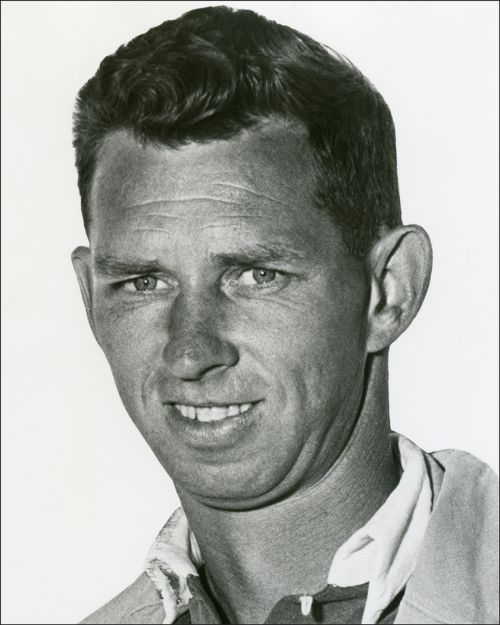 Inductee to the Polo Hall of Fame
Inductee to the Polo Hall of FameW. Ray Harrington Jr.
Elected 1993A native of Texas, Ray Harrington Jr. knew a saddle as a child, but did not begin playing polo until he was in his twenties. Still, this late start did not prevent him from attaining an 8-goal rating which he held for 13 years. He soon acquired the reputation as one of the finest players of his day.
A superb horseman and an enviably agile player, "Mr. Inside-Out" matched his talents with true sportsmanlike conduct on and off the playing field. His record of seven U.S. Open Championships stood unbroken for many years, and he still co-holds the record of four consecutive victories. Eight Twenty Goal championships, two Monty Waterbury titles, a place on the 1969 Cup of the Americas team, and many other trophies are testimony to his greatness.

Ray Harrington (L) and Bennie Gutierrez
1967 US Open at Oak Brook Polo Club
-
Juan Carlos Harriott, Jr.2015
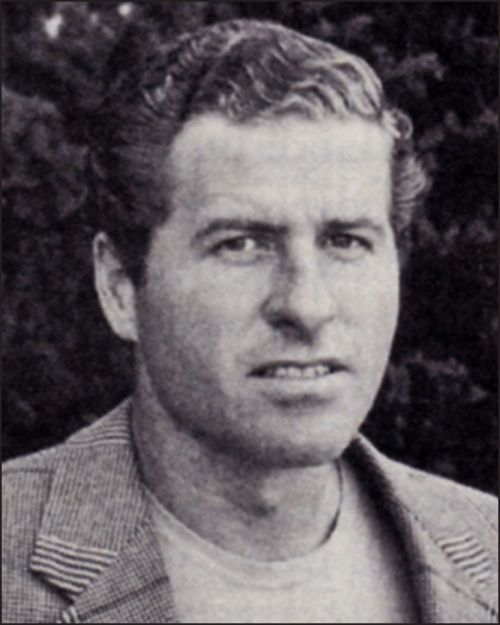 Inductee to the Polo Hall of Fame
Inductee to the Polo Hall of FameJuan Carlos Harriott, Jr.
Elected 2015Argentina’s Juan Carlos Harriott, Jr., is considered by many to be the best to ever play the game. He achieved his 10-goal rating in 1961 and held it until his retirement in 1980 at the age of 44. HIs ability to anticipate the direction of play was unmatched; his striking ability was superb and his equitation flawless.
His iconic record includes victories in 20 Argentine Opens (including 10 in a row), 15 Hurlingham Club Opens and eight Tortugas Opens, and four Cup of the Americas as captain of the Argentine team. In 1980, Time magazine referred to him as “the Pelé of polo” and Gonzalo Tanoira once said of him, “Juancarlitos’ superiority is such that it defies all comparisons, because he truly played at a level much above any of his contemporaries.”
Invited to the United States to play in the ‘60s and ‘70s by polo “revivalists,” Harriott’s contribution to American polo stems, in no small way, from those appearances here. He introduced a style of play that had not been seen since the heyday of polo preceding WWII and inspired a new benchmark for playing excellence in an upcoming generation of aspiring polo players, many of whom are now in the polo Hall of Fame.

-
Cyril Harrison2020
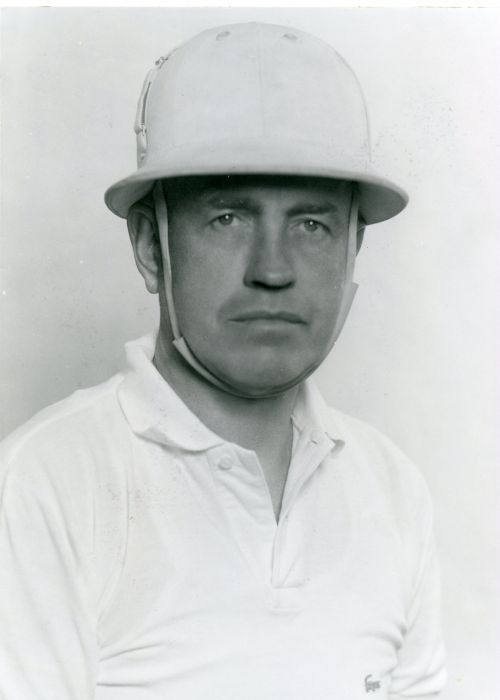 Inductee to the Polo Hall of Fame
Inductee to the Polo Hall of FameCyril Harrison
Elected 2020Cyril R. Harrison dedicated his entire life to polo, recognized as an accomplished player, gifted instructor, a beloved mentor, respected horseman and an exceptional trainer of polo ponies. Known for his exquisite hitting style and smart, competitive team play, he rose to a rating of 7 goals outdoor and 8 goals in the arena playing alongside the greatest of the era. But his gift to polo was in teaching and encouraging others to play. He seeded, organized and ran polo schools for young players all over the country, becoming one of the USPA’s first polo instructors of the modern game. He has been praised by his peers for his passionate efforts to improve the sport and impart his knowledge, which he did until his untimely death at age 58.
 Cyril Harrison doing what he loved most - instructing young players at Brandywine Polo School 1969
Cyril Harrison doing what he loved most - instructing young players at Brandywine Polo School 1969
-
W.L. (Willis) Hartman2000
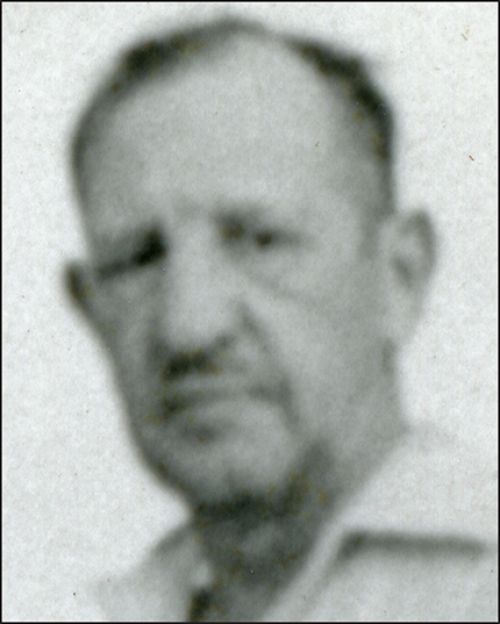 Inductee to the Polo Hall of Fame
Inductee to the Polo Hall of FameW.L. (Willis) Hartman
Elected 2000Willis Hartman’s legacy is substantial and his contributions are numerous. From his home base in Wichita, Kansas, his words of guidance and support have influenced the careers of many amateur and professional players. His true passion was the improvement and development of better polo ponies. To honor the contributions made by the ponies, in 1965 he established the Willis L. Hartman Trophy to recognize the winner of the Best Playing Pony of the U.S. Open.

Willis helped guide the establishment of several important polo centers, including the Tulsa Polo Club, the Broad Acres Polo Club in Norman, Oklahoma, and the Royal Palm Polo Club in Boca Raton, Florida. For over a decade he served as a USPA Governor. He loved the sport so much, he personified the notion that age is but a state of mind, playing the game well into his 80s.

Willis Hartman with his notable string of ponies
-
H. L. (Henry Lloyd) Herbert2000
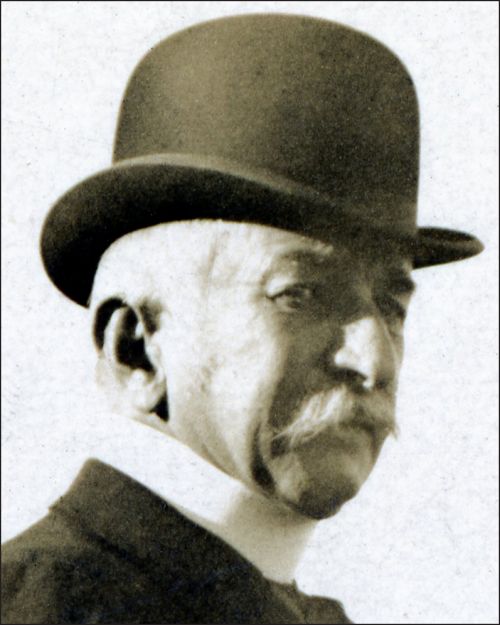 Inductee to the Polo Hall of Fame
Inductee to the Polo Hall of FameH. L. (Henry Lloyd) Herbert
Elected 2000A founding father of American polo, H.L. Herbert was instrumental in establishing and nurturing the sport in the United States. He devised the handicap system in 1888, becoming the country's first and sole handicapper. In 1890 he guided the organization and development of the USPA and was named its first Chairman - a post he held from 1890 to 1921. During his record 31 years of tireless and dedicated service, he was credited with drafting the first set of American field and general rules of play, adapting them from the English Hurlingham rules.
Though not rated highly on his own handicap system, H.L. served as umpire and referee at many turn-of-the-century matches. He, along with James Gordon Bennett and August Belmont, financed the original New York Polo Grounds. H.L.'s unselfish devotion to the best interests of the sport earned him the admiration and gratitude of generations of polo players.
-
Julian Hipwood2010
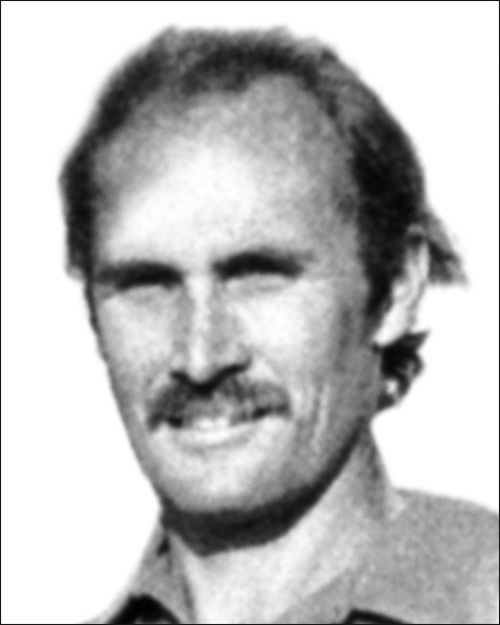 Inductee to the Polo Hall of Fame
Inductee to the Polo Hall of FameJulian Hipwood
Elected 2010 Julian Hipwood, an English player who has lived and played in the United States for many years, earned an impressive 9-goal rating. During his career, Julian won the 30-goal World Cup five times from 1981-1984, the Monty Waterbury in 1996, the USPA Heritage Cup in 1996, the Barrantes Memorial Tournament, and played on the winning team of many of Royal Palm Polo Club's 26-goal Sunshine League tournaments. He played on the Southern Hills team that won the 1980 U.S. Open, however, due to an injury, was sidelined for the final.
Julian Hipwood, an English player who has lived and played in the United States for many years, earned an impressive 9-goal rating. During his career, Julian won the 30-goal World Cup five times from 1981-1984, the Monty Waterbury in 1996, the USPA Heritage Cup in 1996, the Barrantes Memorial Tournament, and played on the winning team of many of Royal Palm Polo Club's 26-goal Sunshine League tournaments. He played on the Southern Hills team that won the 1980 U.S. Open, however, due to an injury, was sidelined for the final.A player with enormous international success, Julian was the captain of the English National team winning the Coronation Cup six times, and the British Gold and Queen's Cups, and was twice a finalist in the prestigious Argentine Open, receiving a standing ovation in 1978, the only Englishman to ever receive this honor. After his high-goal playing days were done, Julian became a sought-after coach and was the coach of the Coca Cola team when it won the U.S. Open in 2002.

-
Louise Eustis Hitchcock1995
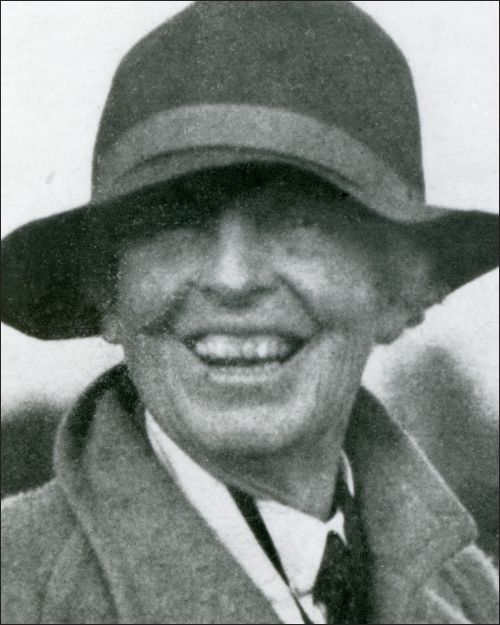 Inductee to the Polo Hall of Fame
Inductee to the Polo Hall of FameLouise Eustis Hitchcock
Elected 1995 She is the clear proof that not all polo legends are made astride a horse. Louise Eustis Hitchcock was a passionate poloist long before women became equal to men on the field, and her legacy in the sport surpasses that of most men. Wife of ten-goaler Thomas Hitchcock, Sr., and mother of the great Tommy Hitchcock Jr., Mrs. Hitchcock was a born leader and visionary. Her turf was the Aiken Preparatory School and the Meadow Lark Club where she coached and inspired future polo stars, themselves today members of the Polo Hall of Fame. Few can be credited with producing as much polo excellence as Louise Hitchcock. No other woman has earned such stature in our sport.
She is the clear proof that not all polo legends are made astride a horse. Louise Eustis Hitchcock was a passionate poloist long before women became equal to men on the field, and her legacy in the sport surpasses that of most men. Wife of ten-goaler Thomas Hitchcock, Sr., and mother of the great Tommy Hitchcock Jr., Mrs. Hitchcock was a born leader and visionary. Her turf was the Aiken Preparatory School and the Meadow Lark Club where she coached and inspired future polo stars, themselves today members of the Polo Hall of Fame. Few can be credited with producing as much polo excellence as Louise Hitchcock. No other woman has earned such stature in our sport.
Mrs. Hitchcock, Narragansett, RI, 1913
-
Thomas Hitchcock Jr.1990
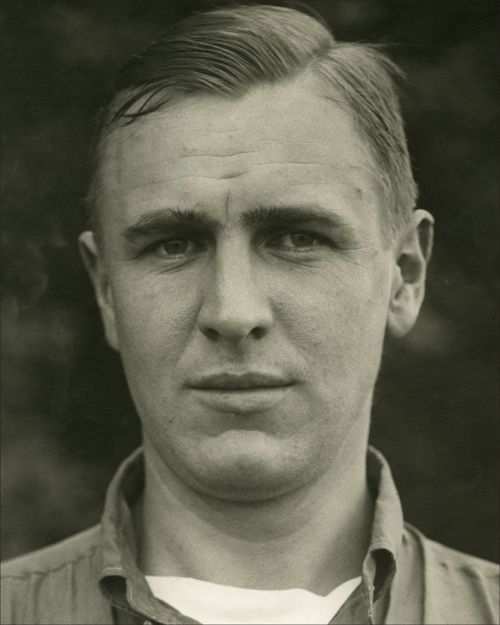 Inductee to the Polo Hall of Fame
Inductee to the Polo Hall of FameThomas Hitchcock Jr.
Elected 1990Thomas Hitchcock Jr. celebrated his 16th year by winning both the U.S. Junior and Senior Polo Championships. He represented his country in international competition on eight occasions, winning the Westchester Cup against England at age 21. At the height of his polo career, a writer for Polo Magazine said, "There never can be a question about the amazing performance of Mr. Thomas Hitchcock, Jr., in this series of 1927. No one who has not seen a ten-goal player play fifteen-goal polo can imagine the stark power of this youth."
That he was one of the very finest 10-goal polo players of all time is beyond doubt, and he has left a great legacy for polo players everywhere.

Tommy Hitchcock on Toughey
-
Thomas Hitchcock Sr.2002
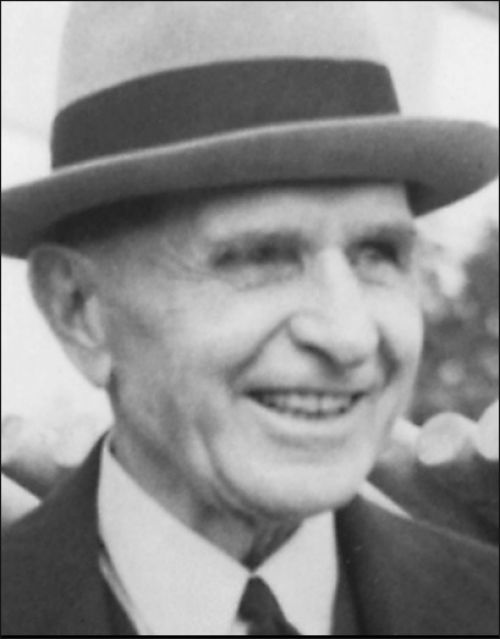 Inductee to the Polo Hall of Fame
Inductee to the Polo Hall of FameThomas Hitchcock Sr.
Elected 2002Thomas Hitchcock was an accomplished steeplechaser who learned polo as an Oxford undergraduate and began playing in the U.S. with James Gordon Bennett. In 1879, Hitchcock played before 10,000 spectators in the first public match in America. He was elected to captain the United States team in the first Westchester Cup against Great Britain in 1886. He was one of the founders of the United States Polo Association in 1890. He attained his ten-goal rating in 1894, becoming one of the first ten-goal players in the history of American polo, and held that rating as late as 1901.
He was founder of the Meadowbrook Polo Club and - with his wife Louise Eustis Hitchcock - fostered the growth of polo in Aiken, South Carolina. They were the parents of polo legend Tommy Hitchcock.

Thomas Hitchcock Sr. - Westchester Polo Club
-
Glen Holden Sr.2002
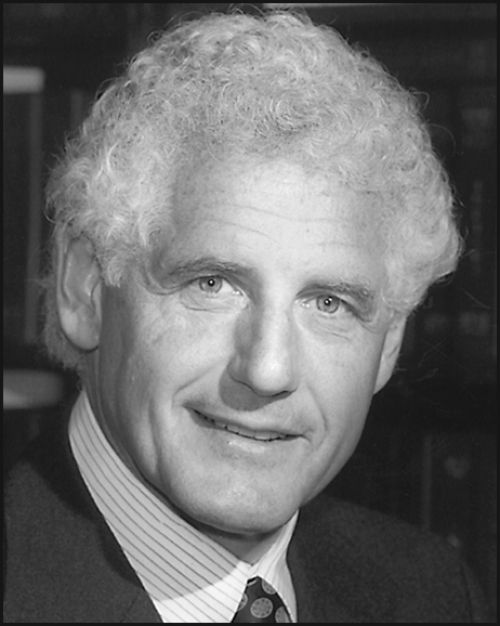 Inductee to the Polo Hall of Fame
Inductee to the Polo Hall of FameGlen Holden Sr.
Elected 2002During his 40 years of polo, Glen Holden's tournament wins include the Pacific Coast Open, the U.S. Open Championship and the Governor’s Cup. A leading force in the development of international polo, he was a founding member of the Federation of International Polo and served as its president from 1997 through 2005. Holden served 10 years as a USPA governor and was co-founder of "Polo on the Mall" in Washington, D.C. His substantial efforts secured the longevity of the Santa Barbara Polo Club and he was an advocate of California polo, serving as Pacific Coast Governor from 1976-1985. His generous contributions to polo causes are exemplified in the Holden International Fund to develop the polo skills of young players from around the world.
-
Philip L. B. Iglehart1993
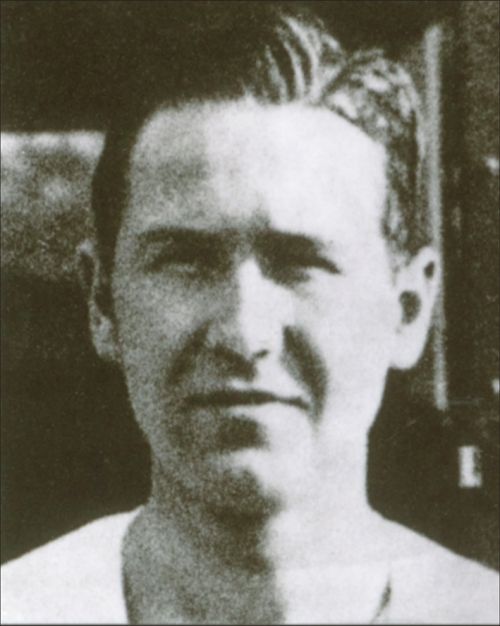 Inductee to the Polo Hall of Fame
Inductee to the Polo Hall of FamePhilip L. B. Iglehart
Elected 1993For Philip Iglehart, polo was more than an avocation – it was a tradition to honor and nurture. As a boy at the Aiken Preparatory School and later at St. Paul's and Yale, he was steeped in polo skills and lore. When leaving polo at graduation to pursue a business career, he was already rated 7-goals. After a 20-year hiatus, Philip returned to polo and soon reclaimed his old rating which he then held for 13 years. To his playing credit is a U.S. Open Championship, as well as the Interscholastic, the Senior, the Twenty Goal and Twelve Goal titles. His off-the-field credits shine no less: leadership at the Meadowbrook Club, creation of the new Gulfstream Polo Club, and taking the Museum of Polo and Hall of Fame from a dream to reality.

Philip Iglehart on Chavel, 1930
-
Stewart B. Iglehart1990
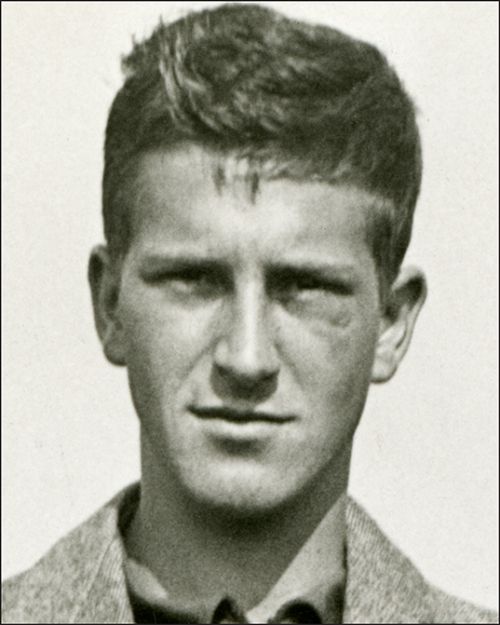 Inductee to the Polo Hall of Fame
Inductee to the Polo Hall of FameStewart B. Iglehart
Elected 1990Stewart Iglehart began his career on the Old Aiken team which won 11 tournaments over a four-year period, before any of its members reached 21 years of age. This same team, in 1931, defeated the Argentine Santa Paula team which later that season won the U.S. Open. Stewart was a five-time winner of the U.S. Open and represented America on four occasions versus England and Mexico. He also won the Indoor Polo Open Championship twice.
He was a brilliant 10-goal player who was known for his tactical finesse, great anticipation and teamwork. At the #3 position, he had the uncanny ability to turn the play and stay one stride ahead of the opposition. By his own play, he inspired teammates to perform beyond their usual capabilities.


-
John F. "Jack" Ivory2021
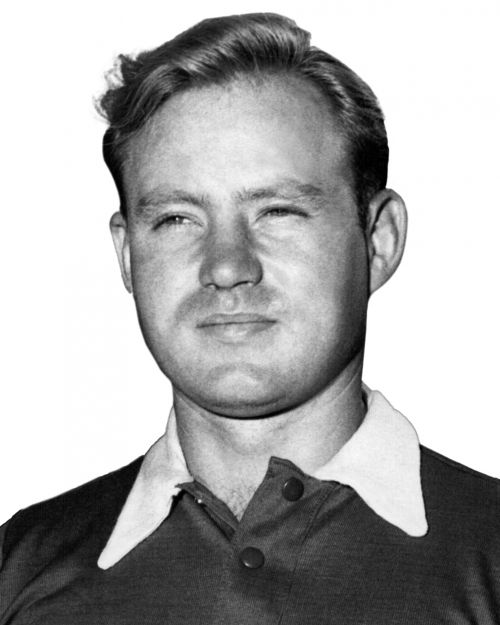 Inductee to the Polo Hall of Fame
Inductee to the Polo Hall of FameJohn F. "Jack" Ivory
Elected 2021At age 10, John F. "Jack" Ivory began his polo career in the Detroit area. As a hard-hitting teenager, he was dubbed the "boy wonder" of Midwest polo. After serving in World War II, he ascended on the national scene to help revive the sport in the post-war era. Jack was best known as the fearless, hard-riding captain of the Ivory Rangers. By 1955 he achieved a 7-goal outdoor rating and an 8-goal indoor rating. During his career, Jack was a player-manager in Detroit, Chicago, Aiken, San Antonio, and Delray Beach. An energetic and innovative promoter, he worked tirelessly to make high-goal polo accessible to wider audiences around the country. Jack retired from the sport in 1993 as the "grand old man" of Michigan polo.
-
S.K. (Skey) Johnston, Jr.2001
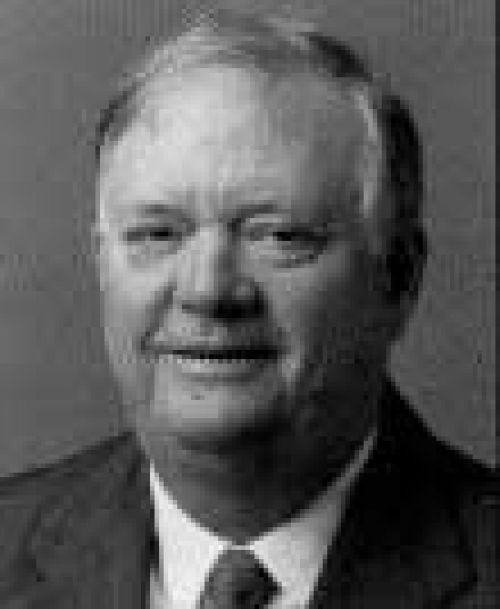 Inductee to the Polo Hall of Fame
Inductee to the Polo Hall of FameS.K. (Skey) Johnston, Jr.
Elected 2001Polo needs more friends like Skey Johnston. One of the last of the left-handed players, he gave of himself to benefit the sport. At the club level, Skey was president of the well-respected Gulfstream Polo Club in Florida. His teams played at the club and national levels. Internationally, Skey advocated polo's return to the Olympics.
In his years of service to the USPA, Skey served as vice president from 1979 to 1980, as president from 1980 to 1984 and as chairman from 1984 to 1988. He will always be remembered as fair-minded and "in nobody's camp except what's good for the USPA - high goal, low goal, club polo and everyone."
He provided much needed corporate sponsorship for many clubs and tournaments. In 1982, he was awarded the Hugo Dalmar Trophy for exemplary sportsmanship.
-
Foxhall P. Keene1992
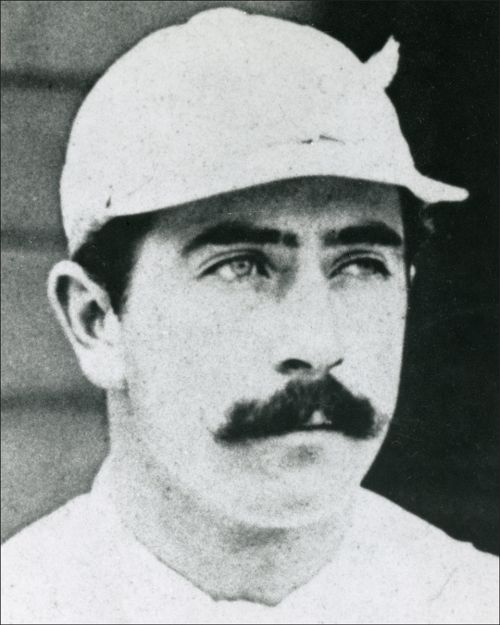 Inductee to the Polo Hall of Fame
Inductee to the Polo Hall of FameFoxhall P. Keene
Elected 1992Foxhall Parker Keene began his polo career at Newport, Rhode Island and the Rockaway Hunt Club, N.Y. At the age of 16, he played on the American team in the first Westchester Cup matches vs. England in 1886. In 1929, Newell Bent in his book, American Polo, wrote of him, "Mr. Keene was a very brilliant and finished No. 3 and his play both in England and America was so outstanding over so many years, that he was long considered above all other polo players in this country. Handicapped from 1888 to 1918 – fourteen years at ten goals and sixteen years at nine goals – with never a man handicapped above him, and for eight years standing alone at the head of the handicap list, is Mr. Keene's long record at polo play.”

Foxhall Keene on White Wings
The complete sportsman, Keene was also a founding member of the National Steeplechase Association, an avid golfer who competed in the 1897 U.S. Open and who made it to the quarterfinals in the 1898 U.S. Amateur, and a top-level tennis player, reaching the semifinals of the 1883 U.S. National Championships and the quarterfinals in 1885.
-
Northrup R. Knox1994
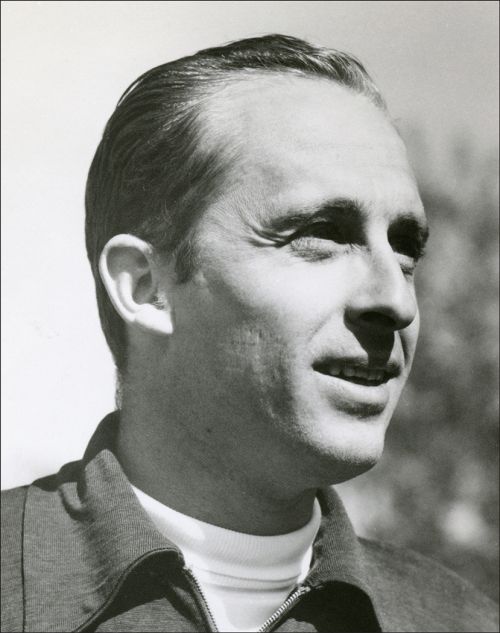 Inductee to the Polo Hall of Fame
Inductee to the Polo Hall of FameNorthrup R. Knox
Elected 1994Born to polo, Northrup "Norty" Knox could claim considerable achievements both on and off the field. The only amateur in the postwar era to reach an 8-goal rating, he captained the U.S. team in the challenge for the Cup of the Americas in 1965 and ‘69, distinguishing himself as one of America's finest offensive players. Among his other accomplishments on the polo field are a National Twenty-Goal Championship, and a Butler Handicap title.
In his many of years of service to the sport, including the chairmanship of the USPA, Norty insightfully championed the cause of low-goal players establishing the Twelve Goal and lower-goal Governor's Cup, along with the minus-one rating. These actions served well the subsequent resurgence of the sport.
-
Lewis Lacey2010
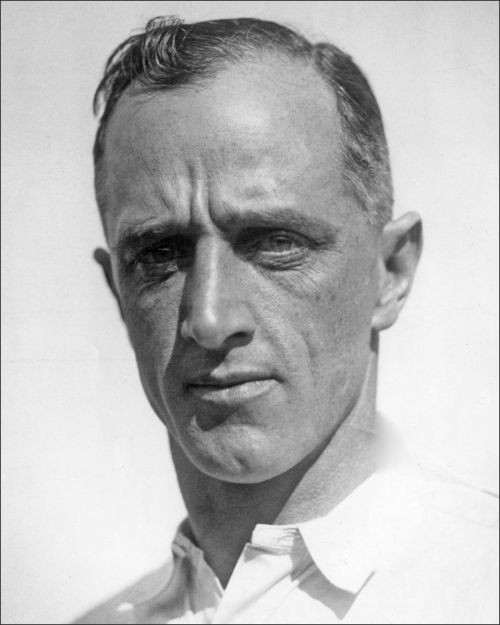 Inductee to the Polo Hall of Fame
Inductee to the Polo Hall of FameLewis Lacey
Elected 2010Canadian-born Lewis Lacey had a long and distinguished international polo career, representing England in the Westchester Cup, and captaining Argentina in the Cup of the Americas. He was a member of the famed Argentine team that took the U.S. Open in 1922, and he won the Argentine Open several times between 1915 and 1937, as well as other notable tournaments in England and Argentina.
Lewis played often in America, almost every year from 1922 until 1931, never handicapped at less than 9-goals and rated 10-goals between 1915 and 1932. Many of his ponies were purchased by American buyers, most notably Jupiter and the celebrated Tobiana, Tommy Hitchcock's most famous mount; both horses have been inducted into "Horses to Remember."
Lewis also wrote about the game; his better known essays being “Equitation in the Game of Polo” and “The Judge's Task in Polo Pony Shows.”

-
William R. Linfoot1994
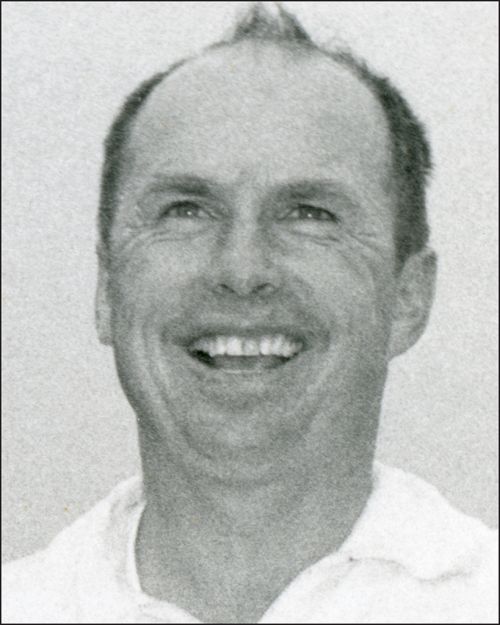 Inductee to the Polo Hall of Fame
Inductee to the Polo Hall of FameWilliam R. Linfoot
Elected 1994One word describes Dr. William "Billy" Linfoot: inspirational. Rated 9-goals, he was one of the world's best offensive players, whose form and skill at speed are legendary. No less esteemed was Doc's talent with horses. He knew how to spot them, and they would do absolutely anything for him. His energy was boundless, his sportsmanship exemplary, and his motivational ability envied by his opponents. He was a passionate teacher and a friend to all.
In the international arena Doc played on three victorious teams of the Coronation Cup, and competed twice for the Cup of the Americas. At home, his winning record includes four U.S. Open Championships, three Butler Handicap titles, five National Twenty Goal Championships, and the North American Cup.
-
William A. Mayer1995
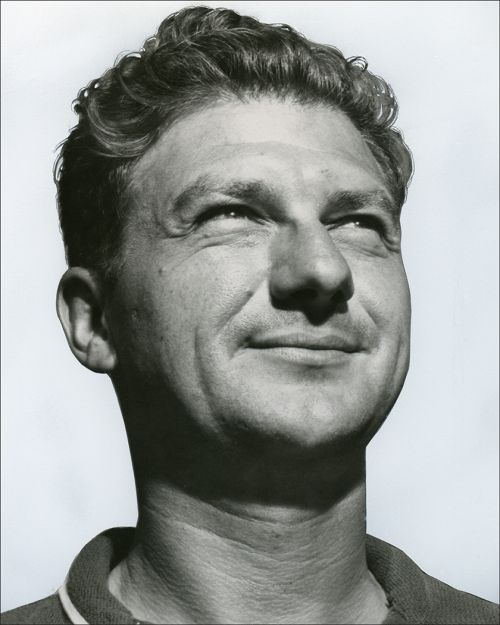 Inductee to the Polo Hall of Fame
Inductee to the Polo Hall of FameWilliam A. Mayer
Elected 1995A determined competitor and a gentle heart rolled into one, that was William A. "Billy" Mayer. Ever the sportsman and gentleman, and one of polo's greats, he minded his horses and fellow players as he did the task of scoring goals and winning. Assisting up-and-coming players was a source of much pleasure to him. A deliberate and fine hitting number three, Billy's name is engraved on the U.S. Open trophy twice, the Twenty Goal Championship twice, along with the Monty Waterbury title amongst others.
While injuries cut short the playing career of this gentle 9-goaler, his love for the sport never waned. For years after, he didn't miss a Sunday match, vicariously playing while serving as a dependable referee.
-
Devereux Milburn1990
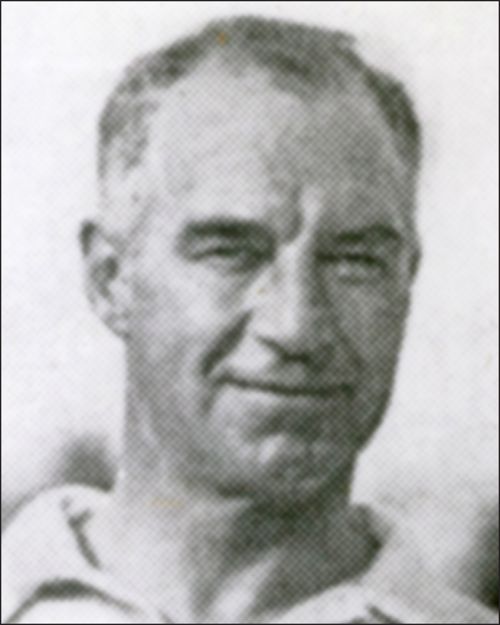 Inductee to the Polo Hall of Fame
Inductee to the Polo Hall of FameDevereux Milburn
Elected 1990Almost 80 years ago, speaking of Devereux Milburn, the British press stated that the American Back on the field should be described as the greatest player in the world. Lewis Lacey, the great Argentine captain, said of this 10-goal player, “I doubt if his defense now can be improved... to me, he is the wonder of the polo age." Later, Thomas Hitchcock, Jr., said, "If there were four Milburns, my choice for an all-time team would be Milburn, Milburn, Milburn and Milburn."
He started polo as a 17-year-old in Buffalo, N.Y., played at Oxford, and became one of The Big Four in international polo, winning the Westchester Cup six times. His record is unassailable but, above all, he embodied the spirit of sportsmanship and great leadership.
-
James P. "Jimmy" Mills2012
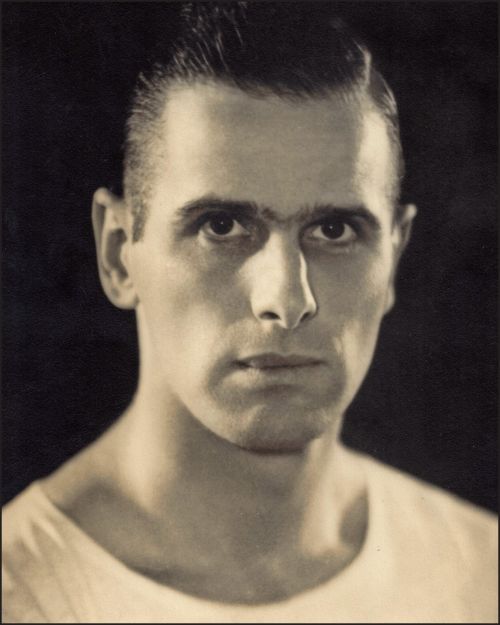 Inductee to the Polo Hall of Fame
Inductee to the Polo Hall of FameJames P. "Jimmy" Mills
Elected 2012Born in 1909, Mills was one of the bright stars during the “hey day” of polo in the 1930s. Mills led his Yale Team to Intercollegiate Indoor Championships in 1931 and ‘32. Rated 8 goals at age 25, his outdoor wins included the 1933 U.S. Open with Aurora, the Monty Waterbury Cup in both 1933 and ’36, and the Junior Championship (now known as the Silver Cup) in 1929 and ’33. And he played on the winning East team in the 1934 East West series.
He was selected as the reserve for the Cup of the Americans team for 1932 and the Westchester Cup team in 1936. In England, he won the Hurlingham Champion Cup, the Roehampton Open Cup, the Coronation Cup, and the Ranelagh Novice’s Cup.
In 1933, when he won the Monty Waterbury Cup with Aurora, they upset a squad that included Tommy Hitchcock and two members of the International Team. He further distinguished himself in the 1934 East-West matches, a shocker that saw Mills win with a young team of “kids” against the heavily favored foursome of Cecil Smith, Eric Pedley, Aiden Roarke and Elmer Boeseke.
His much celebrated career was cut short when he developed debilitating spinal arthritis at the age of 37 (1945). Forced to give up polo, he then dedicated himself to producing race horses.

-
John "Jackie" Murphy2017
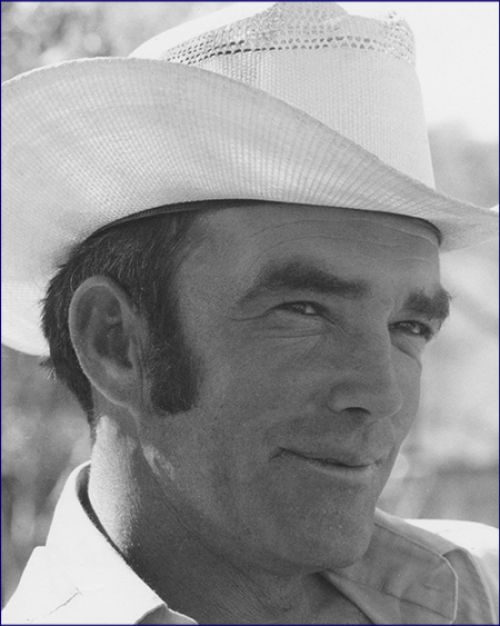 Inductee to the Polo Hall of Fame
Inductee to the Polo Hall of FameJohn "Jackie" Murphy
Elected 2017“Jackie’s” stature as a polo star may be eclipsed by his alter ego; a man remembered as honest and uncomplicated, low-key and likeable. Dynamic on the field, the 7-goaler possessed skill that drove him to win the most important tournaments of the 60s including four consecutive U.S. Opens, three Silver Cups, two Butler Handicaps, and he was on the USA 30-Goal team in Argentina all before the age of 30.
 USA Team in the 1966 Cup of the Americas tournament in Argentina;
USA Team in the 1966 Cup of the Americas tournament in Argentina;L-R: Northrup "Norty" Knox, Bobby Beveridge, Roy Barry, Harold Barry, L. Smith, Jackie Murphy
He learned to play polo as a youngster in Chicago and went on to play and work for Cecil Smith and Paul Butler at Oak Brook. The relationship lasted 13 years as he became one of the finest horsemen and players in the country while also managing the club. Murphy continued to compile an enviable record in polo until his untimely death at age 37 when polo lost one of its most beloved players and friends.

John "Jackie" Murphy, 1967 Governor's Cup
-
George K. Oliver1991
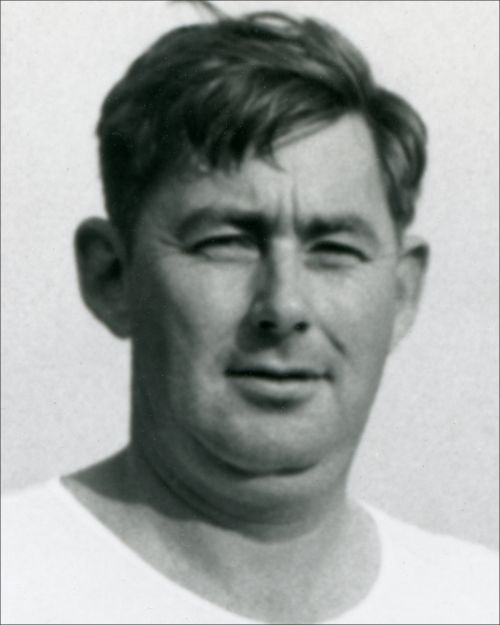 Inductee to the Polo Hall of Fame
Inductee to the Polo Hall of FameGeorge K. Oliver
Elected 1991The son of an Idaho horse dealer, George Oliver was born into a world of horses, a world which remained his life-long interest. He received a 9-goal rating in 1948, and among his many polo victories were five U.S. Open Championships, the National Twenty Goal on three occasions, and the Deauville Gold Cup in 1952. He captained the U.S. team versus Argentina in 1950.
His interest in polo took him to virtually every state in this country as well as many places abroad and his organizational abilities greatly contributed to many club operations. A fine horseman and judge of horses, George Oliver was a great player and advocate of the game.

-
Stephen A. Orthwein2011
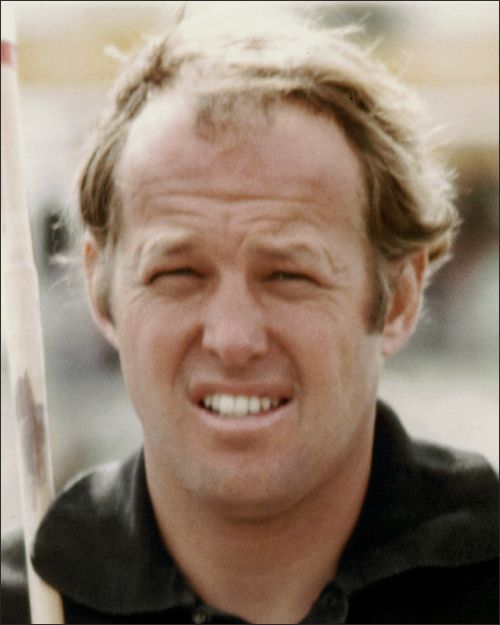 Inductee to the Polo Hall of Fame
Inductee to the Polo Hall of FameStephen A. Orthwein
Elected 2011In addition to attaining a six-goal handicap, Steve Orthwein has devoted over 50 years of his life to supporting the sport of polo. He was the recipient of the Hugo Dalmar sportsmanship award in 1988, and was been the Chairman of the USPA from 1991 – 1995; President from 1988 – 1991; and Secretary from 1984 to 1988. He served many terms on the USPA International, Tournament, Rules and Rules Interpretation Committees as well as serving as Chairman of the Umpire Committee from 1996 –2005. Steve also served as Chairman of the National Handicap Committee from 1988 – 1991, and represented the USPA on numerous committees and official positions with the Federation of International Polo. He also served as Chairman of the Museum of Polo and Hall of Fame from 2001 until 2010.
As a player from a multi-generation polo family, he made his first national bones by leading Yale University to National Collegiate Polo Championships in 1967 and ‘68, and has gone on to win many more tournaments including the Sixteen Goal championship in 1967, the Monty Waterbury Cup in 1977, and the Butler Handicap in 1979.

-
John C. "Jack" Oxley2005
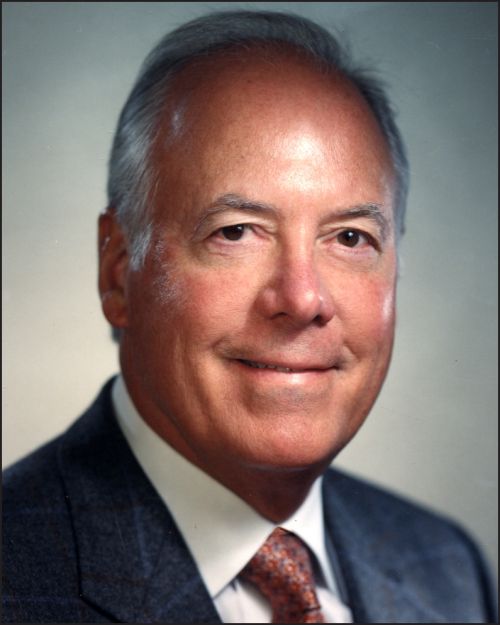 Inductee to the Polo Hall of Fame
Inductee to the Polo Hall of FameJohn C. "Jack" Oxley
Elected 2005Jack Oxley's continued dedication to the sport has had a profound effect on American polo. As an accomplished player, Jack reached a 5-goal handicap and along the way won virtually every major USPA tournament, including the U.S. Open in 1983, the Cowdray Park Gold Cup with the American Boca Raton team in 1970, the C.V. Whitney Cup, the Rolex Gold Cup, the America Cup, the Monty Waterbury, the Pacific Coast Open, the Twelve and Sixteen Goal Championships, three Chairman's Cups, the Butler Handicap, the North American Cup and numerous Sunshine League titles.
For his outstanding sportsmanship, he was awarded the Hugo Dalmar award in 1985 and the Florida-Caribbean Sportsmanship award in 2001. Jack made significant contributions to improve the sport by initiating the Oxley Foundation challenge grants to benefit the Polo Museum and the Polo Training Foundation. His long tenure on the United States Polo Association Board of Governors culminated in terms as both president and chairman. His support of the Royal Palm Polo Sports Club, a club with nearly half a century of excellence, provided a safe haven and green polo fields for both beginning and high-goal players until its closure in 2008.

-
John T. Oxley1994
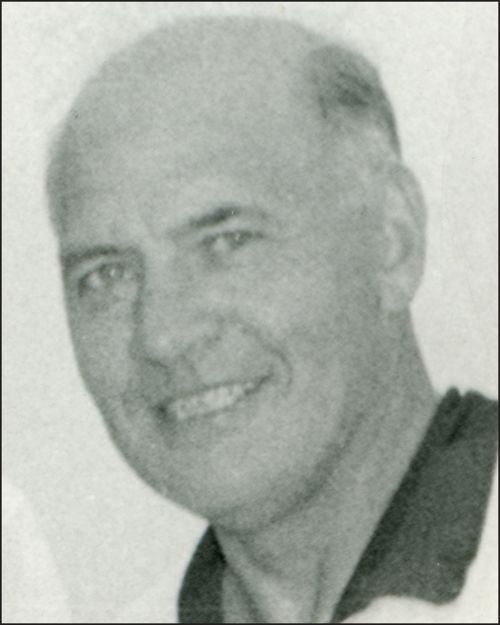 Inductee to the Polo Hall of Fame
Inductee to the Polo Hall of FameJohn T. Oxley
Elected 1994At the age when some players consider hanging up their mallets, John T. Oxley picked his up for the first time, at the age of 46. He was a marvel, playing high-goal polo well into his eighties and contributing immeasurably to the sport.
During polo's lean years he stepped to the helm at Royal Palm Polo Club in Florida and nurtured the USA's best polo, drawing on both American and foreign stars, pleasing throngs of fans while heralding the new era for the sport. The early safety helmet, the arena at Cornell University, American-bred polo ponies, generous support of polo causes, and opportunities for young players were all part of John's illustrious record along with two U.S. Open Championships, the USPA Rolex Gold Cup (won at the age of 83), Silver Cup and Monty Waterbury titles, countless Sunshine League victories, and 27 medium-goal championships.
-
Al Parsells1999
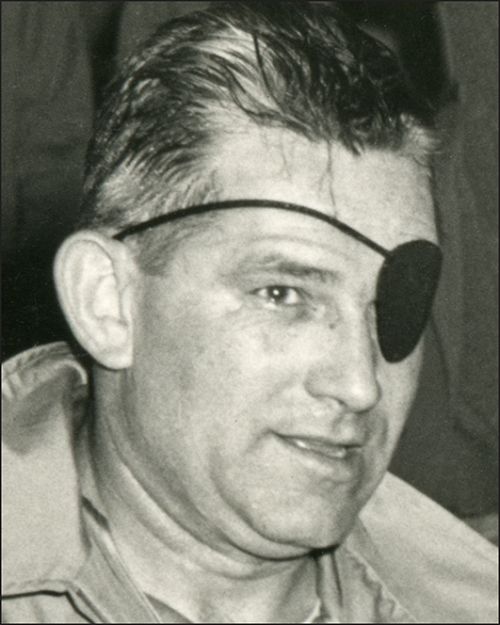 Inductee to the Polo Hall of Fame
Inductee to the Polo Hall of FameAl Parsells
Elected 1999A shining light in the gray post-war era, Albert "Al" Parsells accomplished so much and did so against steep odds. One of the arena's finest stars, he was 9-goals both in the arena and on the grass, all the greater achievement for having lost an eye as a child.
A textbook sportsman, Al shared his talent with all who sought him. He coached aspiring players and was always ready with helpful advice. He managed the famed Meadow Brook and Squadron-A polo clubs, and were it not for his untimely death at the age of 36, his exploits would be greater still. In his short career, Al represented the East indoors and out, won two arena Senior Championships, a National Arena Chairman's Cup and a Monty Waterbury title.
-
Eric Pedley1991
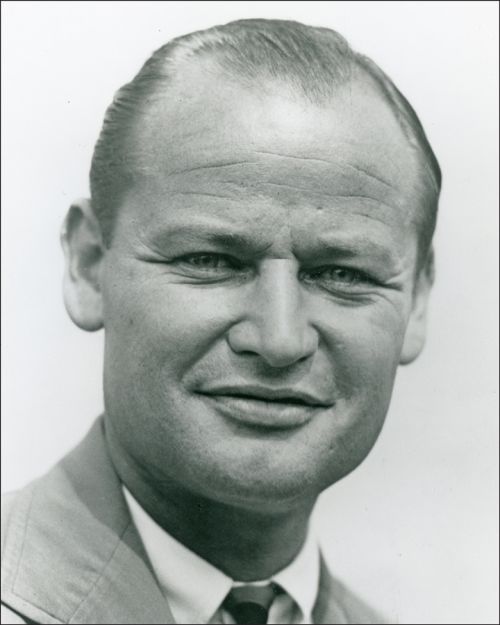 Inductee to the Polo Hall of Fame
Inductee to the Polo Hall of FameEric Pedley
Elected 1991Eric Pedley was a famous member of one of California's first polo playing families, starting his career as a boy on a Shetland pony. He was a member of the Midwick Team which won the National Twenty Goal and the U.S. Open Championship, both in 1924. In 1930 and ’36, he represented his country in the Westchester Cup matches versus Great Britain. As a result of his outstanding performance in 1930, he earned a 9-goal handicap rating. A three-time winner of the U.S. Open Championship, he had an illustrious career spanning half a century, winning every major tournament and many of them on several occasions. He was capable of playing any position on the polo field and an extraordinary all-around athlete in every sport he every undertook to play.
-
Peter Perkins2014
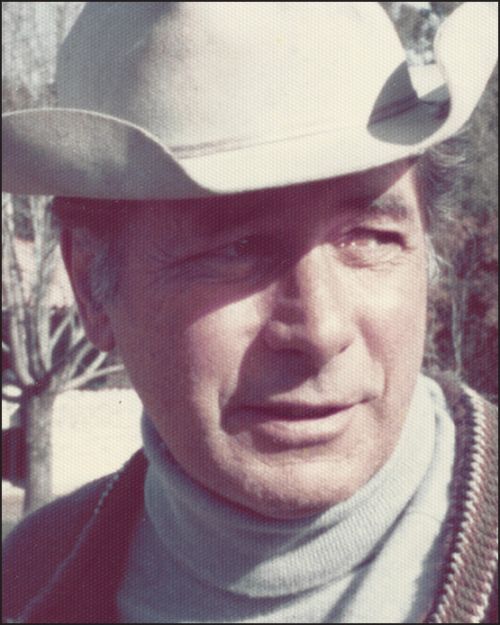 Inductee to the Polo Hall of Fame
Inductee to the Polo Hall of FamePeter Perkins
Elected 2014Born in 1918 on Long Island, N.Y., Peter Perkins grew up in California learning to play polo from his father. After World War II, during which he was a prisoner-of-war for three years, Perkins returned to polo and achieved his highest rating, 8-goals, in 1946.
During his career, Perkins won the U.S. Open and the Monty Waterbury twice each, in 1948 and 1951, played on the winning West team in the 1947 and 1951 East-West series, played on the winning U.S. team in the 1946 Camacho Cup, and in 1949 played for Meadow Brook at Palermo, finishing second in the World Championship. He also won the Gold Cup at Deauville, and the Midhurst Town and Royal Windsor Cups in England.
Dashing and handsome, Perkins was used as a model for many advertising campaigns in the late 1940s and early 1950s. He eventually retired to Argentina, and dedicated the rest of his life to raising Thoroughbred racehorses.

-
Michael G. Phipps1994
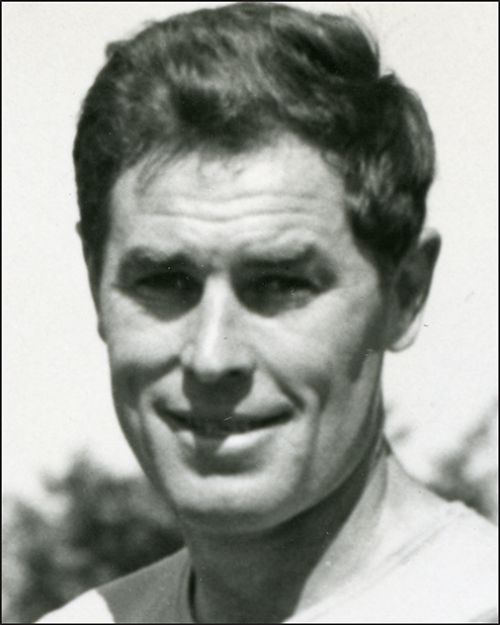 Inductee to the Polo Hall of Fame
Inductee to the Polo Hall of FameMichael G. Phipps
Elected 1994A star in the era of stars, Michael "Mike" Phipps was a member of the best all-American team ever - the 1939 forty-goal "Dream Team". A well-mounted 10-goaler, a quick and eager offensive player, he could always be counted on to make the difficult shot at goal. From his victorious days at Yale University, he was a consistent winner both internationally and at home. He played on the last U.S. team to win the Cup of the Americas, and won twice each the Westchester and Camacho Cups.
The near mythical 1933 East-West match saw Mike play on the East team as he also did the following year for the East's victory. Five U.S. Open Championships, four Monty Waterbury titles, and two Arena Open Championships are still more trophies to his credit.

Michael Phipps (left)
-
Gonzalo Pieres2008
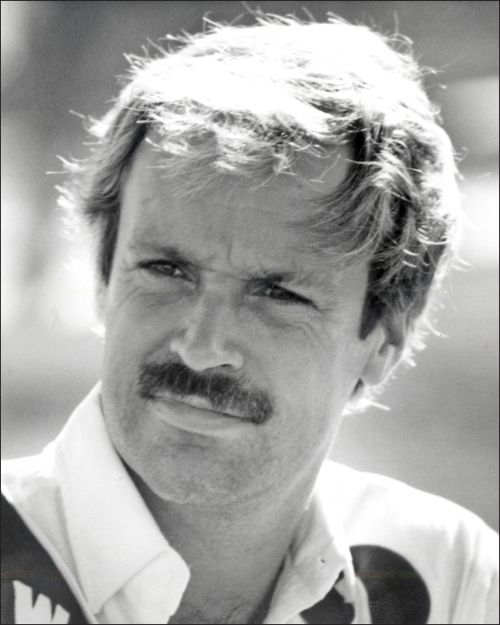 Inductee to the Polo Hall of Fame
Inductee to the Polo Hall of FameGonzalo Pieres
Elected 2008Gonzalo Pieres won the Argentine Open nine times and has been on the winning team in the Queen's Cup, Coronation Cup, Cowdray Park Gold Cup and the British Open. In 1994, he won the Argentine triple crown with Ellerstina, teamed with Adolfo Cambiaso, Mariano Aguerre, and Carlos Gracida.
In addition to his international titles, Pieres has had a significant impact on American polo. He came to this country as an 8-goal player and rose to 10, playing at Royal Palm and Palm Beach polo clubs. Through the 1980s and into the mid-1990s he was described as “the engine” of the White Birch team. Regarded by many as one of the greatest players in the world, he won the U.S. Open, the 26-goal Sunshine League several times, dominated the USPA Gold Cup with wins in 1983, '84, '86, '87, '88, '89 and ’95, and won the 30-plus-goal World Cup at Palm Beach Polo at least five times.
Gonzalo's sons are also extraordinary polo players, with high handicaps: Gonzalito (10), Facundo (10) and Nicolás (9).

-
Billy Post2016
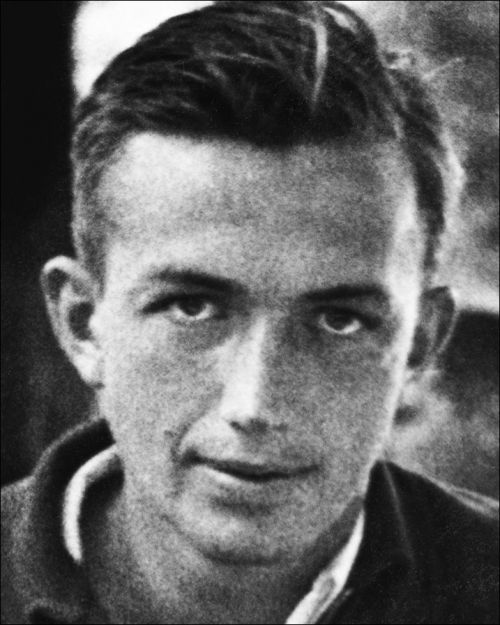 Inductee to the Polo Hall of Fame
Inductee to the Polo Hall of FameBilly Post
Elected 2016 William “Billy” Post II was born into a polo family for whom breeding ponies was its principal business, so it is little wonder that as an 8-goal polo star Post made his mark as a stellar horseman and formidable hitter. For his talents he was lauded as one of the greats. Referred to as both brilliant and polished, Post engaged in battle with the other heroes of the golden age of polo in the 1930s as part of a “band of brothers” along with the likes of Hitchcock and Milburn. He deftly notched wins in the most important contests of the era both in the U.S. and abroad, most notably the 1932 Cup of Americas as “back” on the winning American team against Argentina. With his career cut short with the onset of WWII, Post continued his interest in horses and became a successful trainer of race horses until his untimely death at age 54.
William “Billy” Post II was born into a polo family for whom breeding ponies was its principal business, so it is little wonder that as an 8-goal polo star Post made his mark as a stellar horseman and formidable hitter. For his talents he was lauded as one of the greats. Referred to as both brilliant and polished, Post engaged in battle with the other heroes of the golden age of polo in the 1930s as part of a “band of brothers” along with the likes of Hitchcock and Milburn. He deftly notched wins in the most important contests of the era both in the U.S. and abroad, most notably the 1932 Cup of Americas as “back” on the winning American team against Argentina. With his career cut short with the onset of WWII, Post continued his interest in horses and became a successful trainer of race horses until his untimely death at age 54.Billy Poston on Carlon

-
Owen Rinehart2009
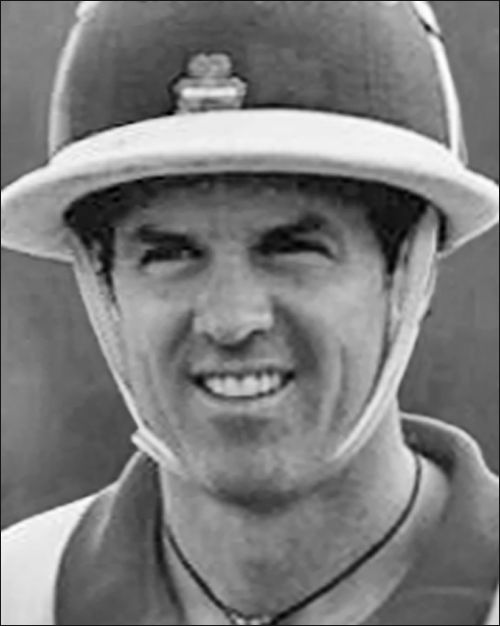 Inductee to the Polo Hall of Fame
Inductee to the Polo Hall of FameOwen Rinehart
Elected 2009Starting at an early age, Owen made a commitment to become one of polo’s best players and in 1991, he rose to the pinnacle of the sport by becoming 10-goals. During that rise to polo perfection, Owen earned the reputation of always being well mounted and well prepared for every game in which he played. He competed in numerous USPA events, winning the 1986 U.S. Open Championship and the U.S. Open handicap in 1982, and the Gold, C.V. Whitney, Monty Waterbury, America, Hall of Fame and World Cups, as well as the East Coast Open. Internationally, he played on the winning U.S. teams in the 1987 Coronation Cup and the 1992 Westchester Cup. Owen also participated in the Avila Camacho Cup series in 1981 and ‘88 and has a substantial record of tournament wins in England. His pony, Hill Country Slim, won the Hartman Trophy in 1986.

-
Aidan Roark2023
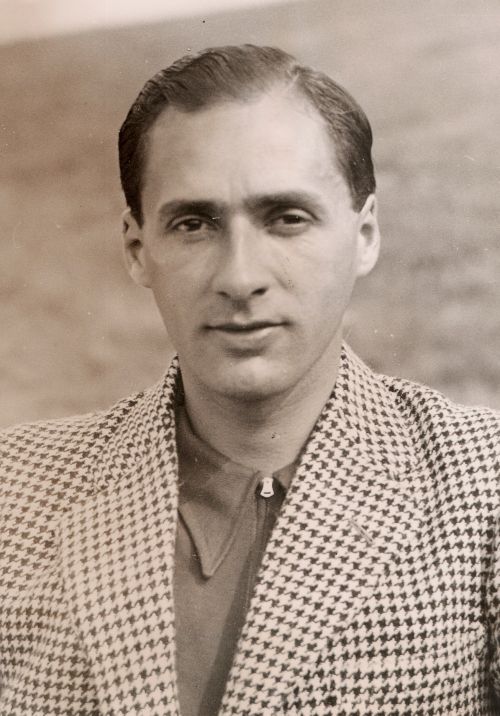 Inductee to the Polo Hall of Fame
Inductee to the Polo Hall of FameAidan Roark
Elected 2023Aidan Roark had a celebrated career in the United States and internationally during the Golden Age of Polo prior to World War II. The Irish-born Roark was a solid fixture in California, primarily at the Riviera Polo Club in Los Angeles, and a pioneer for polo on the West Coast for decades. Representing his adopted home, the talented 8-goal star was a key part of the winning team from the "upstart" West in the fabled 1933 East-West series, and again in 1934. He then played for Great Britain in the prestigious 1939 Westchester Cup at Meadow Brook. In 1949, Roark represented the U.S. in the International Match against Argentina before retiring from polo in 1954.
-
Stephen J. Roberts1996
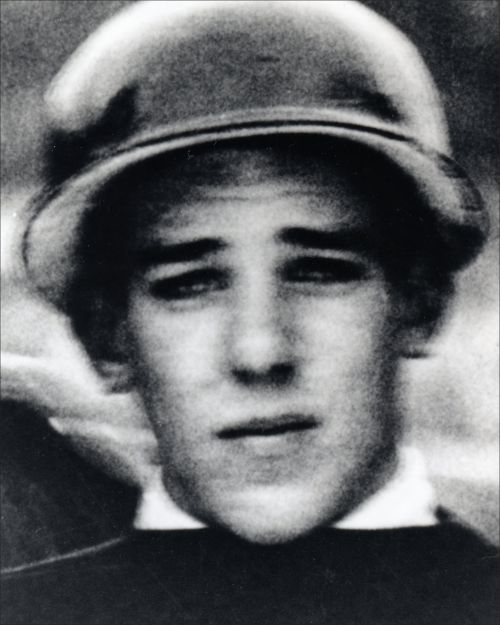 Inductee to the Polo Hall of Fame
Inductee to the Polo Hall of FameStephen J. Roberts
Elected 1996Say "intercollegiate polo" and coach Stephen "Doc" Roberts emerges head and shoulders above the rest. While synonymous with Cornell University, his influence and legacy reach deep into the heart of America, and for countless players, he is still a beacon of inspiration.
With astute insights, professional duties notwithstanding, his dedication to the sport and its young aspirants has been legendary. The post-war reemergence of Cornell's polo likewise his doing. Later he was instrumental in forming the Queechee Polo Ckub - introducing yet another generation to the galloping sport. Teaching polo was in his blood.
An accomplished player in his own right, Doc Roberts played on Cornell's first championship team and countless tournaments since. His ability was only matched by his honed sense of sportsmanship.


-
Will Rogers2005
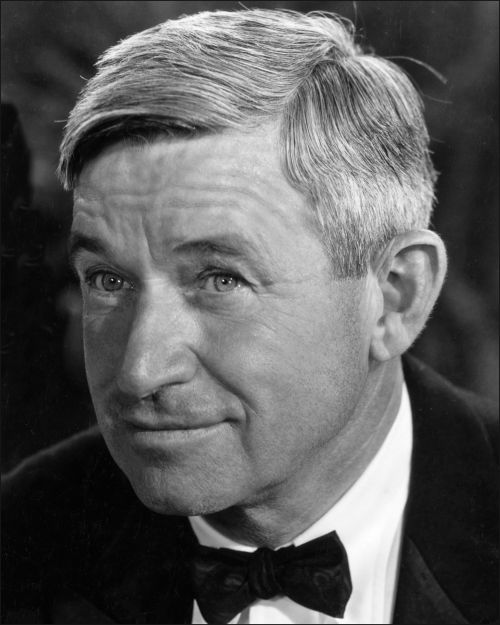 Inductee to the Polo Hall of Fame
Inductee to the Polo Hall of FameWill Rogers
Elected 2005There may have been no better spokesman for the sport of polo than Will Rogers. Well-known and highly regarded as a colorful and witty personality, humorist, writer and actor, Rogers was also a good polo player, reaching a handicap of 5-goals during what he described as the "hay day" of polo in the 1930s.
He was a consummate cowboy and championed the cause of polo in the West and introduced many movie stars to the sport. He played with many of the top Western players and identified with the "underdogs" style of polo, comparing the Western ways of cowboy polo to the things he learned growing up throwing a rope in Oklahoma. He played all over the world and helped establish and finance interscholastic and intercollegiate polo programs. He coined many famous phrases that have endured; one originated from the 1933 East-West series of polo matches: "Well, the hillbillies beat the dudes and took the polo championships of the world right out of the drawing room and into the bunkhouse." Rogers met an untimely death in 1935 when he was killed while flying with celebrated aviator Wiley Post in Alaska.

-
Charles Cary Rumsey2011
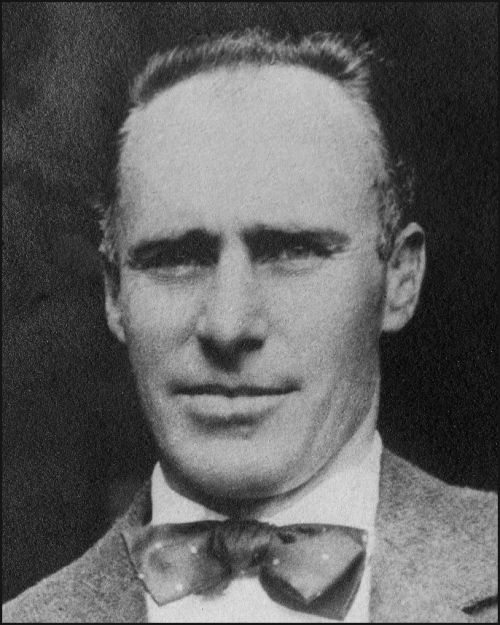 Inductee to the Polo Hall of Fame
Inductee to the Polo Hall of FameCharles Cary Rumsey
Elected 2011An avid sportsman and equestrian, Charles Cary Rumsey played polo in the earliest days of the game in America, reaching a level of 8-goals in 1917. Although his polo accomplishments were many in his short career, he was the unfortunate victim of a fatal automobile accident in 1922.
Rumsey began play in Buffalo with his father, uncles and a family friend named Devereux Milburn. As a student at Harvard, he played at Dedham and later at Meadow Brook. Rumsey’s polo accomplishments include three U.S. Open Championships, back-to-back wins in 1912 and 1913 and another in 1916, and runner-up finishes in 1919 and 1920. As a member of the famed Cooperstown team, he swept all the major tournaments in America, including the Senior Championship in 1913 and 1919; and the Junior Championship in 1912 & 1913. In 1921 he was selected as one of six members of the U.S. team for the Westchester Cup matches against England.

Rumsey achieved fame not only in polo but also in art, as a sculptor who worked mainly in bronze. He had a particularly keen focus on horses and polo, and did statues of favorite horses for Harry Payne Whitney and Tommy Hitchcock, and a medallion for the National Polo Pony Society in 1919.

-
Stephen “Laddie” Sanford2015
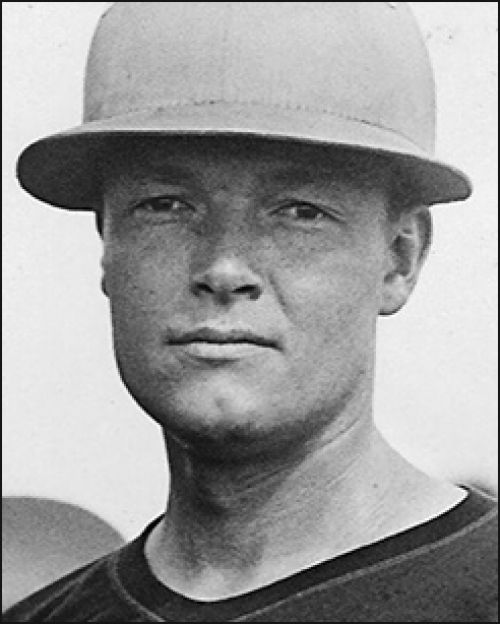 Inductee to the Polo Hall of Fame
Inductee to the Polo Hall of FameStephen “Laddie” Sanford
Elected 2015Laddie Sanford was the dynamic 7-goal patron and captain of the famed Hurricanes team, which won the U.S. Open in three different decades, with victories in 1926, ‘29, ‘30, ‘48 and ‘49. He also won the Monty Waterbury four times, the 1946 Camacho Cup and notched an impressive number of international successes.
His penchant for the finest horses and the ability to buy them earned him the reputation of the best-mounted polo player in the world. In 1928, he made history by purchasing Jupiter for $22,000, by far the highest price paid up till then for a polo pony. His mares Fairy Story, None-So-Pretty and Shamrock dominated the National Pony Show, and Beatrice, Lallah Koolah and Fairy Story also won the coveted Prince Friarstown Cup.



-
Robert Gould Shaw, II2013
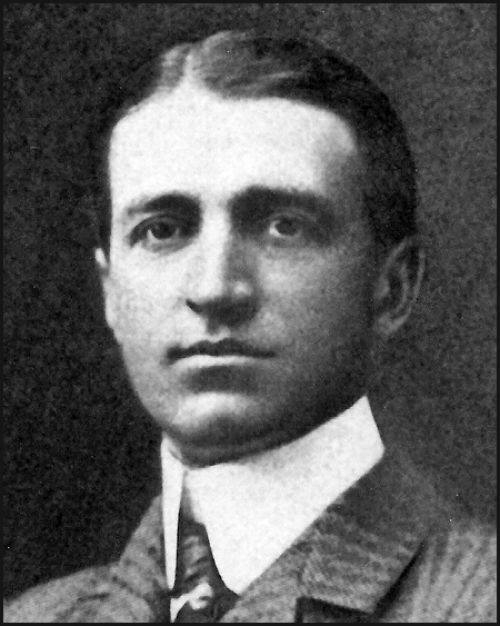 Inductee to the Polo Hall of Fame
Inductee to the Polo Hall of FameRobert Gould Shaw, II
Elected 2013 A star of the first magnitude "Bobby" Shaw was considered to be one of the titans of the late 19th and early 20th century American polo. Honing his skills on the fields of Myopia Hunt Club, he achieved a rating of 9 goals. Among his many accomplishments, he won the Senior Championship (the National Championship) in its inaugural year of 1895 and again in 1904, the 1892 Polo Association, Championship and Added Cups, and the Astor Gold Cup.
A star of the first magnitude "Bobby" Shaw was considered to be one of the titans of the late 19th and early 20th century American polo. Honing his skills on the fields of Myopia Hunt Club, he achieved a rating of 9 goals. Among his many accomplishments, he won the Senior Championship (the National Championship) in its inaugural year of 1895 and again in 1904, the 1892 Polo Association, Championship and Added Cups, and the Astor Gold Cup.His play was described as incredibly brilliant and, having also assembled a fine string of ponies, he defeated the best teams in the country in what were then the top contests in the early days of polo.

Shaw, circa 1895, American Polo by Newell Bent
-
George C. Sherman Jr.1998
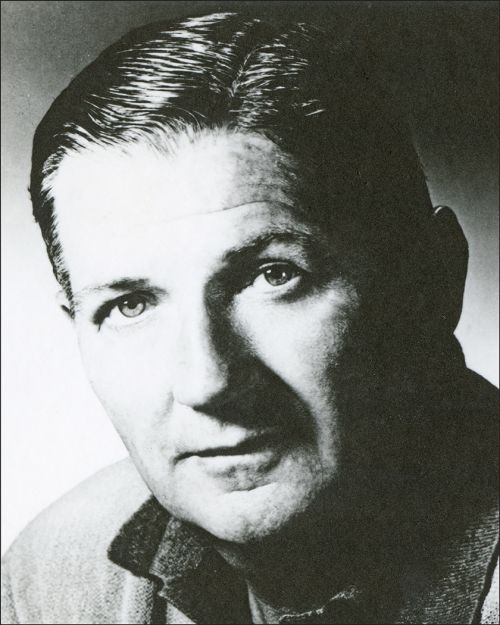 Inductee to the Polo Hall of Fame
Inductee to the Polo Hall of FameGeorge C. Sherman Jr.
Elected 1998The obligation and honor of lineage, that is how George C. Sherman, Jr., saw polo. And he so loved it, too. His graciousness, devotion and selflessness are legendary. He is the standard by which other’s histories would be judged. His scope was wide: Chairman of the Indoor Polo Association, of the U.S. Polo Association, a lifelong commitment to intercollegiate polo, and enduring leadership of Gulfstream Polo Club. He is also one of the founding fathers of the Museum of Polo. No cause was ever too small; no task too large. An avid player, he captained his freshman class at Yale, and had two indoor Senior Championships and a Twelve Goal title to his credit. On and off the field he was sportsmanship personified.
-
William Sinclaire2007
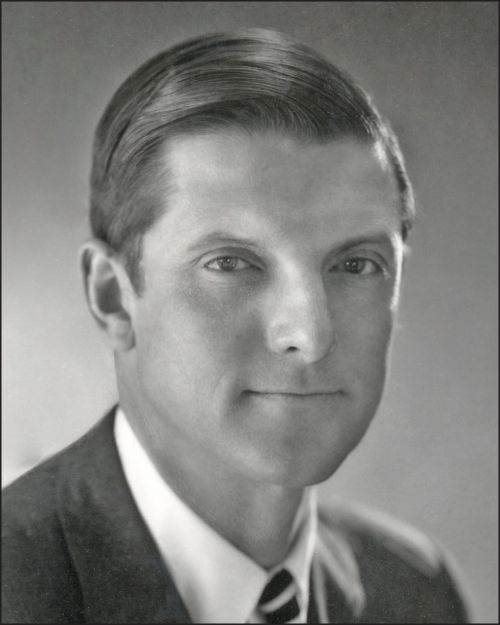 Inductee to the Polo Hall of Fame
Inductee to the Polo Hall of FameWilliam Sinclaire
Elected 2007William "Bill" Sinclaire served as a mentor for many who thought polo was a game worth playing and promoting. He was instrumental in reviving polo in the Rocky Mountain area after WWII by building a field and organizing local ranchers and horsemen into polo teams.
His decades-long involvement with clubs in the Denver, Colorado, area – along with his participation in high-goal polo – gave him a unique perspective on the needs of players and clubs across the United States. Serving as an executive of the USPA for fifteen years, his positions included USPA governor (1969-1971), treasurer (1971-1973), vice president (1973-1976), president (1976-1980) and ultimately as chairman (1980-1984). He was known as a fair and unbiased administrator and dedicated to the well-being of the sport.
Bill was a member of the winning U.S. team in the Camacho Cup series with Mexico in 1975, won the Butler Handicap in 1976, and won and competed in numerous other club and USPA tournaments. For his stewardship and his loyal services to polo, he was awarded the 1989 USPA Hugo Dalmar Sportsmanship Award.

-
Robert Skene1990
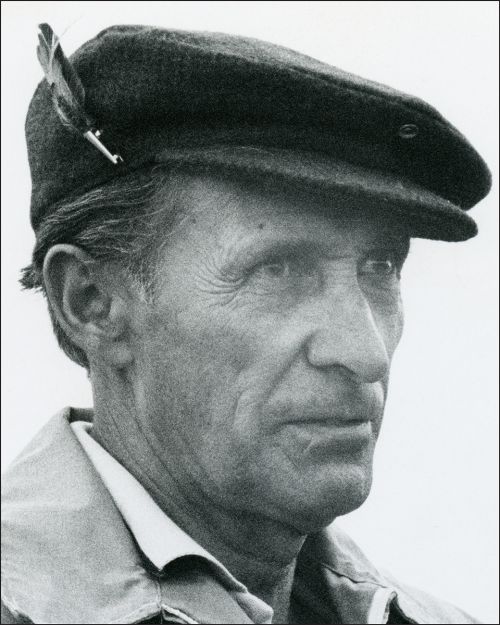 Inductee to the Polo Hall of Fame
Inductee to the Polo Hall of FameRobert Skene
Elected 1990During the 1938 London season, Robert Skene played so well with the Ashton Brothers Australian team that he was invited to try out for the British Team set to challenge America for the Westchester Cup in 1939. He gave an outstanding performance in these matches, played in the U.S. Open Championship and won the Monty Waterbury Memorial Tournament. But WWII intervened, and it would be 10 years before he resumed his polo career.
He came back to reach 10-goals, picked up the nickname “Hurricane Bob,” won the U.S. Open three times and the Argentine Open twice. From 1950 until his death in 1997, he was a tremendous asset to California and U.S. polo as a player, teacher and coach.
-
Cecil Smith1990
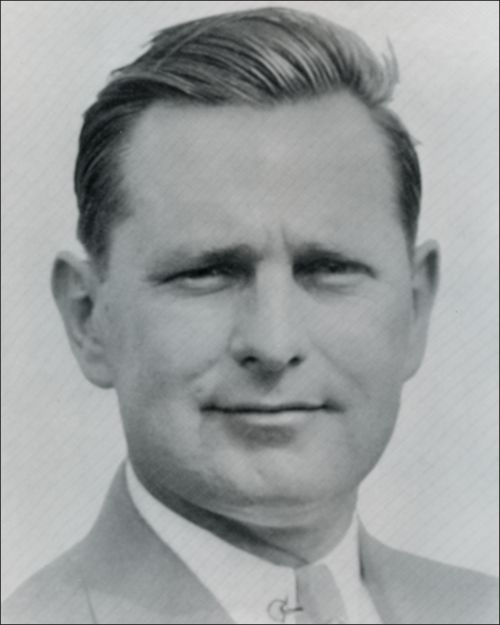 Inductee to the Polo Hall of Fame
Inductee to the Polo Hall of FameCecil Smith
Elected 1990Born on a ranch near Llano, Texas, Cecil Smith learned to ride at the age of three, and was endowed with unquestionable talents as a horseman and polo player. With determination and fortitude he developed his abilities to perfection. Over the years, he played on more fields with more players than perhaps any one else in polo. He was a truly inspirational leader of the game.
He won the Monty Waterbury Cup first in 1930, won the U.S. Open five times and represented America versus Mexico on three occasions. In the famous East West series of 1933, he led the West team to victory. In the third and deciding game, Smith scored six goals as the West won, 12-6. Tommy Hitchcock of the East, polo's most renowned player, was held scoreless. Smith later said, ''I never enjoyed a series any more than I did that one.'' He carried a 10-goal rating from 1938 to 1962, was an all-time great player, and his National and International tournament record speaks for itself.

Cecil Smith on Badger
-
Charles Smith2004
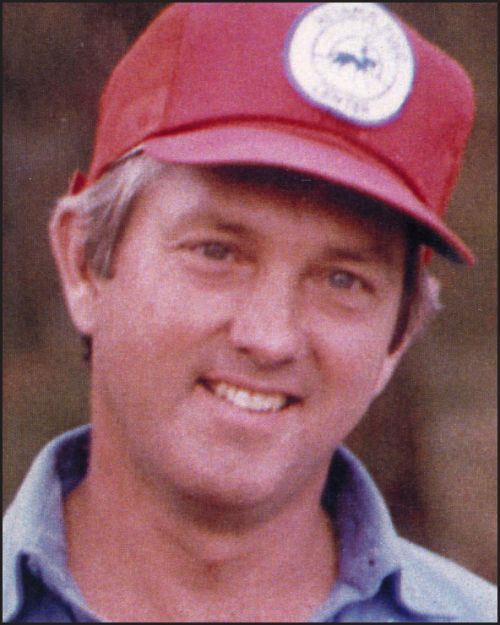 Inductee to the Polo Hall of Fame
Inductee to the Polo Hall of FameCharles Smith
Elected 2004Ranked as a 7-goal player in 1966, Charles Smith won many high goal tournaments: the U.S. Open five times, three C.V. Whitney Cups, the Gold Cup twice, the Butler Handicap twice, and the Twenty Goal or Silver Cup eight times, tying Ray Harrington’s record for most Silver Cup wins. Additional tournament wins of note included six wins in the highly competitive Southwest Intra-Circuit Championships, and the National Inter-Circuit Championship in 1972. He was also a member of the U.S. team for the ‘76 and ’81 Camacho Cups and the 1979 Cup of the Americas. The Hugo Dalmar trophy for sportsmanship was awarded to him in 1999.

-
Lewis A. Smith1997
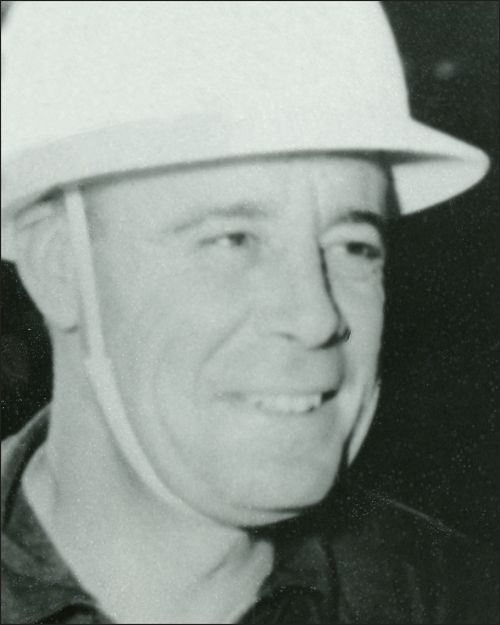 Inductee to the Polo Hall of Fame
Inductee to the Polo Hall of FameLewis A. Smith
Elected 1997A 9-goaler, versatile anywhere on the field, Lewis A. Smith's mastery helped anchor American polo in the recuperative postwar years. With his picture-perfect swing, he played with the best, was one of the very best, and loved by all. His demanding, lifelong responsibilities with the legendary Aurora polo team might have held back a lesser man, but Lewis' talent was singular and irrepressible. An athlete through and through, he was no less a horseman, surpassed by none.
Representing the Stars and Stripes in the 1950 Cup of the Americas, and member of the squad in 1966 and 1969, Lewis played the world over. He was also a finalist in the U.S. Open and had a National Twenty Goal title to his credit.
-
Adam Snow2014
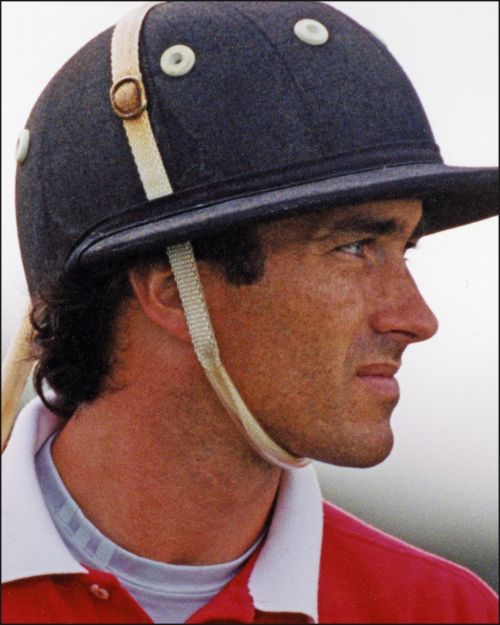 Inductee to the Polo Hall of Fame
Inductee to the Polo Hall of FameAdam Snow
Elected 2014Growing up near Boston, Adam Snow first played polo on the fields at Myopia, at the age of 10. Twenty-eight years later, he joined the elite group of players with 10-goal handicaps in 2002. During his rise, Adam played on the winning American team in the Westchester Cup in 1992, won three Silver Cups, three East Coast Opens, the Gold Cup, the Monty Waterbury, the Pacific Coast Open, the Texas Open and the America Cup twice.
At the peak of his career, he was the winner and MVP of the U.S. Open in 2002 and won the Open again in 2006; Best Playing Pony honors at the Open went to his mares Pumba, in 2002, and Amy, in 2006. Adam has also played around the world, winning the Melbourne and Morton Cups in Australia, the Jack Gannon, Cooch Behar and Ashley Cups in England, and the “Mundialito” in Argentina.

-
Malcolm Stevenson1998
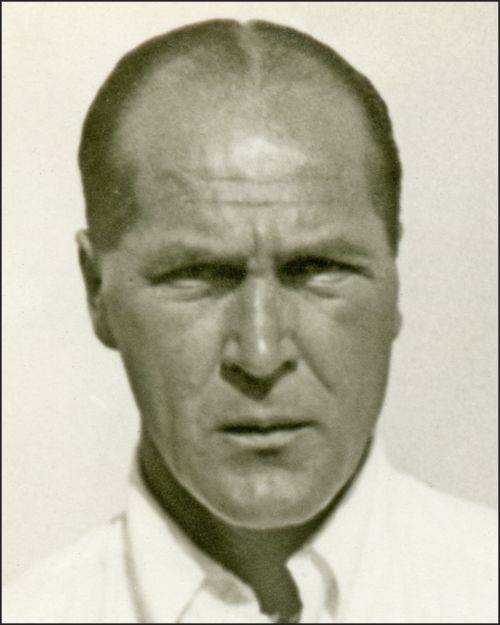 Inductee to the Polo Hall of Fame
Inductee to the Polo Hall of FameMalcolm Stevenson
Elected 1998"Genius at number three" is how 10-goaler Malcolm Stevenson was described. In an era of test matches, of headline-making international rivalries, he was the man to count on. His uncanny sense of anticipation and accurate shots were his hallmark, making him the great play-maker that he was.
An all-around horseman, his place of honor was secured by his winning performance in the 1924 and 1927 Westchester Cup over Great Britain and the 1928 Cup of the Americas against Argentina, affirming decisively American polo's supremacy in his time. Four U.S. Open Championships, seven Senior Twenty Goal Championships, and a Monty Waterbury title rounded out one of polo's most illustrious careers.

-
Louis E. Stoddard1992
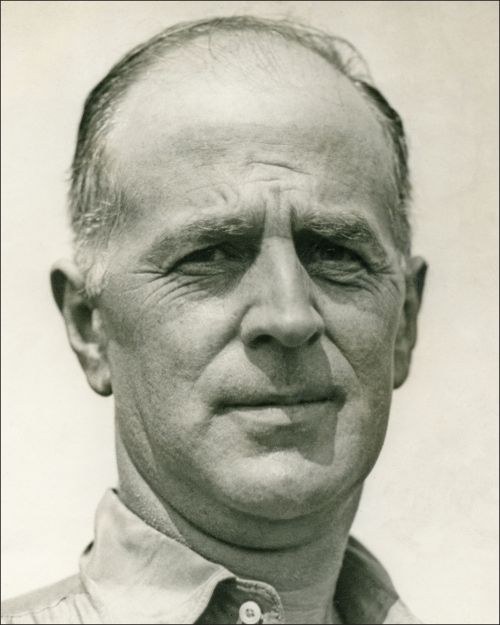 Inductee to the Polo Hall of Fame
Inductee to the Polo Hall of FameLouis E. Stoddard
Elected 1992Louis E. Stoddard started his polo career with the New Haven Polo Club at the turn of the century and in 1909 was named sole substitute for the American Team which successfully challenged England. In 1913, he substituted for the injured Monty Waterbury, and he played for America again in 1921, when he was awarded a 10-goal rank for his performance.
In his playing years, he won the Junior, Senior, Open championship and Monty Waterbury Cup twice each. He was elected Chairman of the United States Polo Association in 1922 and served until 1936. During his stewardship, the Intercircuit Cup and East West Matches were initiated and international games were played with teams from Argentina, Australia, England, Ireland and between British and United States Army teams.

-
Robert E. Strawbridge Jr.1996
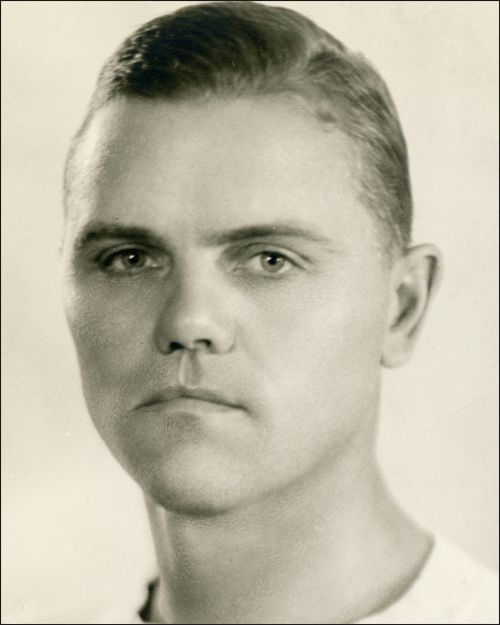 Inductee to the Polo Hall of Fame
Inductee to the Polo Hall of FameRobert E. Strawbridge Jr.
Elected 1996A big man in a big era was Robert E. Strawbridge Jr. For 20 years he stood at the helm of the United States Polo Association overseeing the famed pre-war flowering of the sport. It is a record of commitment unimaginable in today's service of polo, but a clear calling for Robert.
His record on the field was no less impressive, holding a 9-goal rating and, with remarkable adaptability, playing in some of the toughest contests U.S. polo has ever known. As an internationalist he was cast in the number three position where he distinguished himself. He helped bring victory to the nation in the 1924 and 1936 playing of the Westchester Cup against Great Britain. He likewise secured two U.S. Open victories along with a Monty Waterbury Cup, two Junior Championships, and many others in his day.

-
Gonzalo Tanoira2009
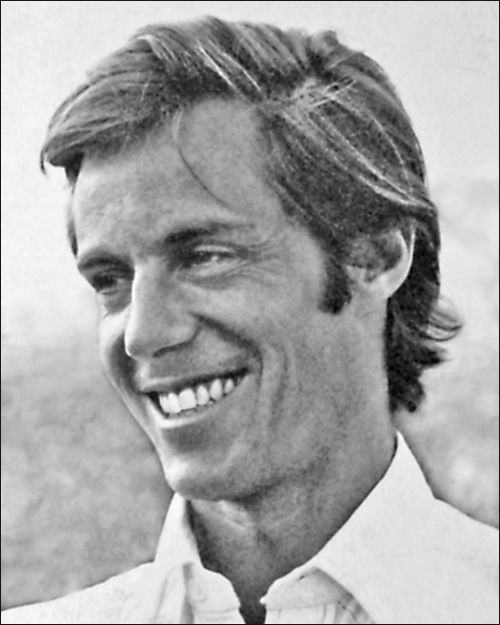 Inductee to the Polo Hall of Fame
Inductee to the Polo Hall of FameGonzalo Tanoira
Elected 2009In the 1970s and ‘80s, many considered Gonzalo Tanoira the finest player in the world, as he dominated much of the high-goal polo played in Argentina and the United States. In addition to his numerous international wins, Tanoira won the 1982 USPA Gold Cup and several 30-goal World Cups played in Palm Beach, Florida. He was named World Cup MVP four times, in 1977, 1980, 1981 and 1982. Gonzalo attained 10-goals in Argentina in 1970 and was also rated at 10-goals in U.S., in 1976.
Polo Magazine noted, “Cool under pressure, Gonzalo has one of the best strokes in polo. Acutely aware of the value of good team play, he always knows where his teammates are positioned on the field so he can make pinpoint passes to them. His light hands and unique style of riding set him apart from even his most talented peers.”
As President of the Argentine Polo Association, he worked with the USPA to improve international relations between these two polo-playing countries.

-
Robert (Bob) Uihlein2001
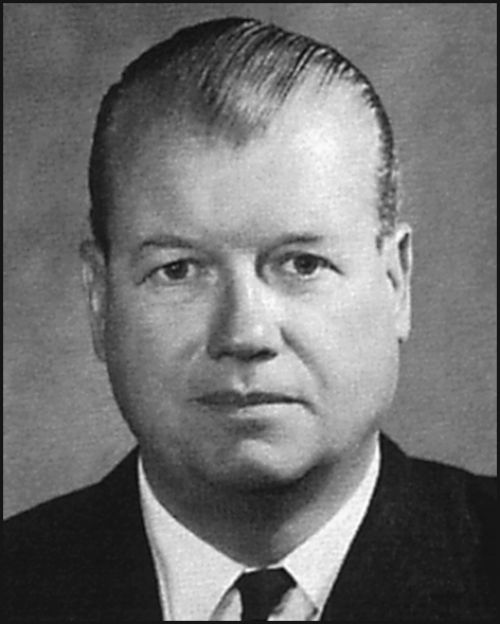 Inductee to the Polo Hall of Fame
Inductee to the Polo Hall of FameRobert (Bob) Uihlein
Elected 2001When polo needed leaders, Robert "Bob" Uihlein, Jr ushered in a new age for the sport. After World War II, he was the driving force behind the Milwaukee Polo Club. In 1974, he and others inaugurated Milwaukee's prestigious Gold Cup, now a top-rated event. His commitment to the preservation of polo in the Midwest stemmed from his love of the game and his admiration of the people who enjoyed the sport as he did.
Bob fielded many high-goal teams in leagues and in USPA tournaments. He earned two U.S. Open Championships with his Milwaukee teams and also won several Sunshine League and Twenty Goal titles.
He served as a Governor of the USPA from 1949 to 1953, and from 1955 to 1974. His dedication and character made him a respected supporter of the game.
-
Robert E. (Rob) Walton2000
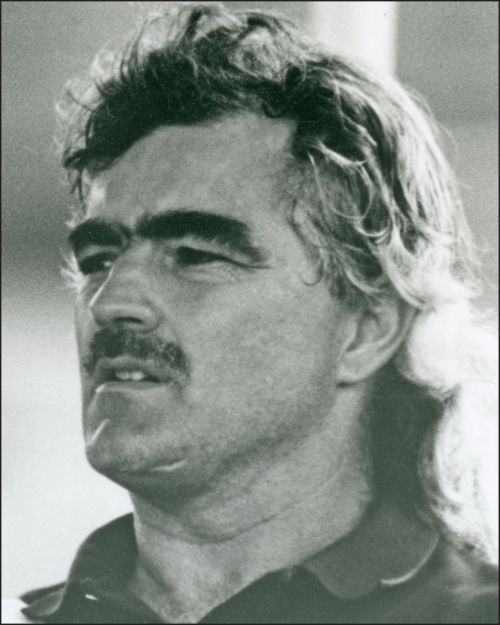 Inductee to the Polo Hall of Fame
Inductee to the Polo Hall of FameRobert E. (Rob) Walton
Elected 2000Part of the famous Walton Clan of California, Rob was known best for his fierce determination on the polo field. In the United States he attained the rating of 9 in the arena and 8 outdoors, while in Great Britain he earned the outdoor rating of 9.
His national victories included the US Handicap, Sunshine League, Pacific Coast Open, Silver Cup, Monty Waterbury Cup, the America Cup, US Arena Handicap, and the Interscholastic Arena Championship. Rob's international titles included the Westchester Cup, the Coronation Cup, the Queen's Cup, and the Mexican Open Handicap.
In 1995, Rob suffered a career-ending injury after a near fatal fall from his mount. Undaunted, Rob rose above his greatest challenge. Like the courageous warrior he was on the polo field, he persevered through adversity, becoming a team coach and an inspiration to both players and fans.
-
James “Monty” Waterbury1993
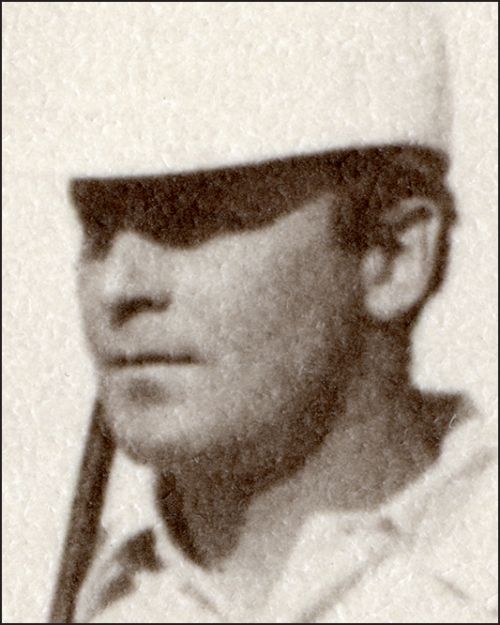 Inductee to the Polo Hall of Fame
Inductee to the Polo Hall of FameJames “Monty” Waterbury
Elected 1993Few players had a shorter yet more illustrious career than James Montaudevert "Monty" Waterbury Jr. A 10-goaler, he was a member of the legendary team - The Big Four - which in 1909 turned the tide of international polo in favor of the United States. Always composed and in perfect control of himself, his pony and his mallet, "Monty" used his insightful mind and finesse, not brawn, to excel. Playing at the number one and two positions, often playing with his brother Larry, his ball passing was renowned. He held the distinction in his day of being the best scorer the game had ever seen.
Before his death in 1920 at age 45, he won the Westchester Cup five times, the very first U.S. Open Championship, and ten Senior titles. In 1922, the first match was played for the Monty Waterbury Cup, named in his honor.

-
Lawrence Waterbury1993
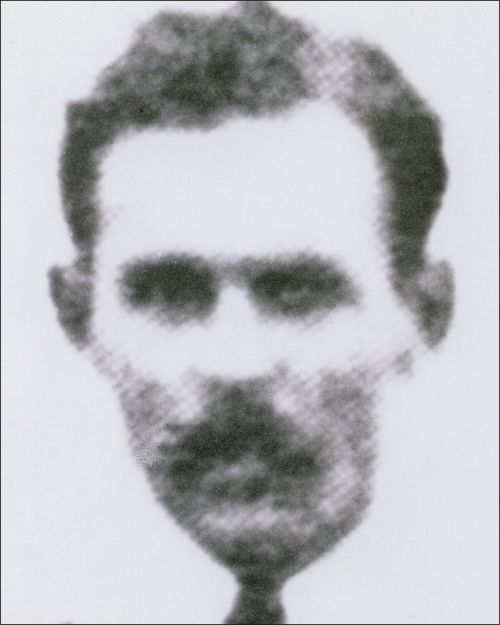 Inductee to the Polo Hall of Fame
Inductee to the Polo Hall of FameLawrence Waterbury
Elected 1993A versatile, all around athlete, Lawrence "Larry" Waterbury was a competitor with an insatiable appetite. A 10-goaler and a member of The Big Four, polo's undefeated international team, he helped usher in an era of a new style of aggressive and fast polo that dethroned Great Britain.
A daring rider and brilliant hitter, Larry was known for his accurate passing game in the front of a team, yet his reputation as a back was equally formidable. He is the only player in the history of the Westchester Cup to have played all four positions. In addition to five Westchester Cup victories between 1909 and 1914, he won the first U.S. Open Championship and seven Senior titles.
-
Tommy Wayman1998
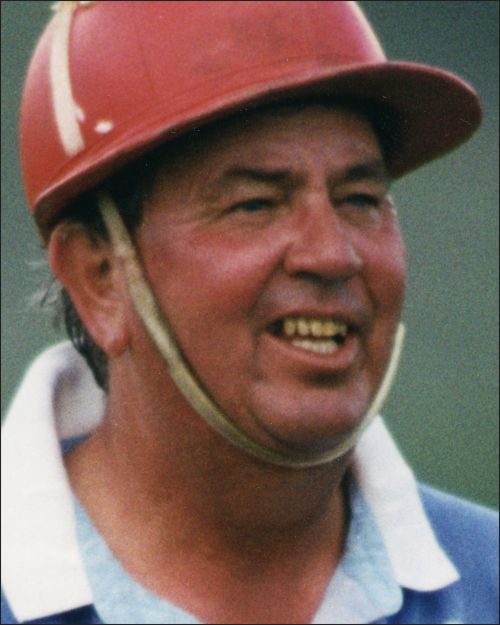 Inductee to the Polo Hall of Fame
Inductee to the Polo Hall of FameTommy Wayman
Elected 1998The first native son in a generation to earn a 10-goal rating, Thomas "Tommy" Wayman restored hope to a polo nation yearning for old glory. Smooth, quick and superbly offensive, he is a gentle man and a master horseman. He never forgets a horse and can claim many of the finest to his credit.
An inspiration to young players, he was U.S.A.'s shining number two. Twice representing the nation against Argentina in the Cup of the Americas, two Coronation Cup victories over Great Britain, and two contests against Mexico in the Camacho Cup, one victorious, made him a leading internationalist. A glimpse at his trophy case also reveals six U.S. Open Championships, a Gold Cup, two World Cup and Butler Handicap titles each, and three Pacific Coast Open titles.
-
J. Watson Webb1991
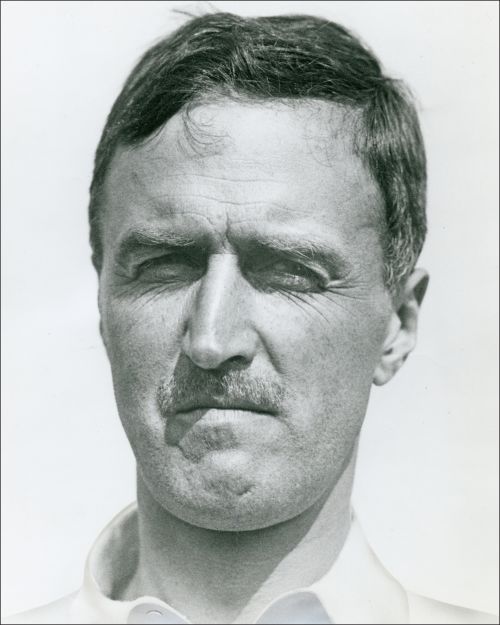 Inductee to the Polo Hall of Fame
Inductee to the Polo Hall of FameJ. Watson Webb
Elected 1991James Watson Webb was the only left-handed 10-goal player in the history of polo. In his book American Polo, Newell Bent said of him, "In the year 1921 Mr. J. Watson Webb played on our international team against England. In 1924 and 1927 he again represented his country in the international matches, and over a long term of years he has strongly helped one team or another in all our important cup events. A left-handed player, a fine back-field player as well as a forward, Mr. Webb is very quick, a fine horseman, and a very accurate goal hitter.”
From 1908 to 1929, Webb won the U.S. Open six times, the Senior and Junior Championship each twice, and he proved himself to be an extraordinary, unselfish and versatile sportsman.

-
Cornelius Vanderbilt Whitney2022
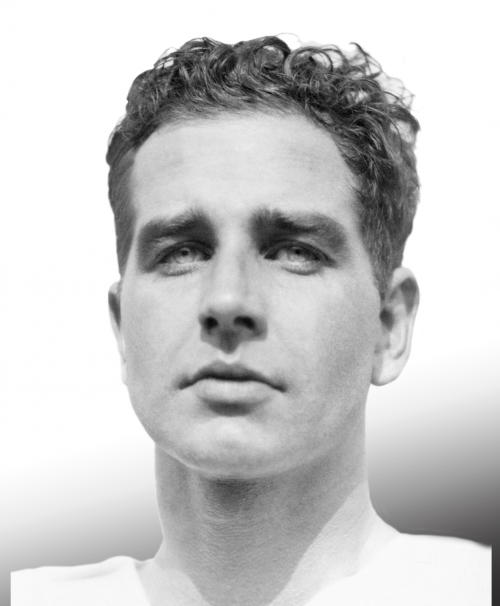 Inductee to the Polo Hall of Fame
Inductee to the Polo Hall of FameCornelius Vanderbilt Whitney
Elected 2022A man who lived his life with a fullness that most can only dream of, Cornelius V. “Sonny” Whitney left a lasting mark in polo. Although immersed in business and philanthropy, he rose to a 6-goal handicap during his playing career that spanned the “Golden Era” of polo. Whitney was a formidable factor in all the major tournaments, winning the U.S. Open three times and the Monty Waterbury Cup as well. He carried on the polo legacy of his father, Hall of Famer and member of the famed Big Four, Harry Payne Whitney. After his playing days, Whitney raised outstanding racehorses, with 15 that competed in the Kentucky Derby. In 1979, the C.V. Whitney Cup was established in his name and is still played today as part of the USPA’s Gauntlet of Polo series.
-
Harry Payne Whitney1990
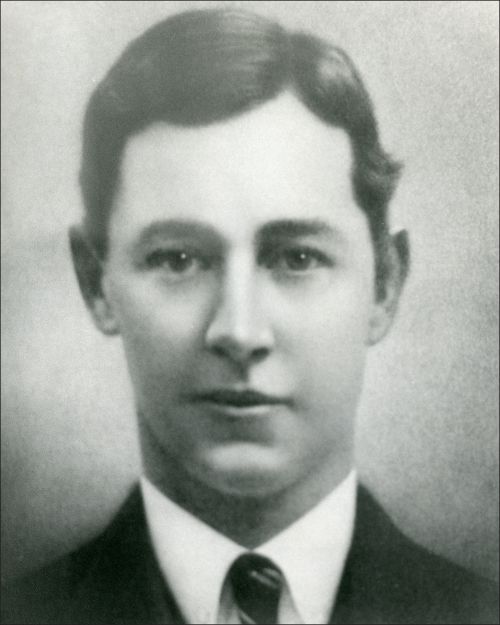 Inductee to the Polo Hall of Fame
Inductee to the Polo Hall of FameHarry Payne Whitney
Elected 1990In 1908, Harry Payne Whitney took on the task of organizing an American team to challenge England for the Westchester Cup. He chose the best players for the team, assembled a great string of ponies and devised the teamwork and strategy. The American victory in 1909 revolutionized polo and made it the fast, fluid and exciting game it is today. Whitney was also a major force in yachting, thoroughbred horse breeding and racing, the appreciation of sporting art, and philanthropy.
According to Devereux Milburn, Whitney was a great polo player and an inspiring captain. It would be impossible to overestimate the debt that American polo owes this 10-goal player.

Harry Payne Whitney on Balada
-
William T. Ylvisaker1996
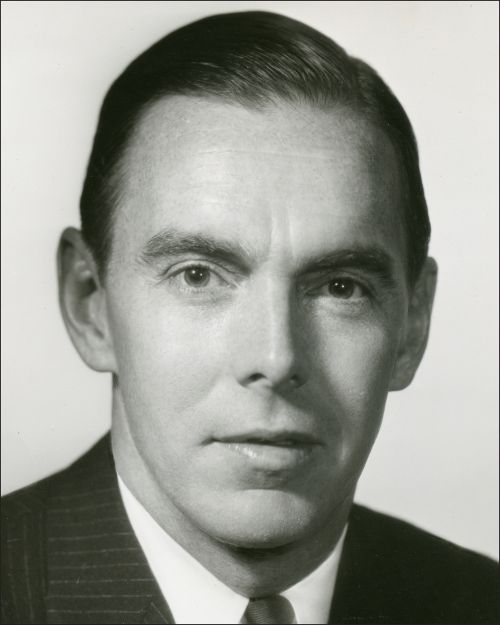 Inductee to the Polo Hall of Fame
Inductee to the Polo Hall of FameWilliam T. Ylvisaker
Elected 1996A bright meteor in polo's sky, William T. "Bill" Ylvisaker had an astonishing presence in some 50 years in the saddle and the committee room. His record was singular and his legacy potent for generations to come. Vision imbued in a fiercely competitive instinct was his hallmark.
 His major triumphs include Chairmanship of the USPA, creation of the Polo Training Foundation, the Polo Newsletter and later ushering in the new Polo Magazine, establishing the World Cup and the stellar Palm Beach Polo and Country Club.
His major triumphs include Chairmanship of the USPA, creation of the Polo Training Foundation, the Polo Newsletter and later ushering in the new Polo Magazine, establishing the World Cup and the stellar Palm Beach Polo and Country Club.Starting with an interscholastic Championship and captainship of Yale's polo team, he rose as an amateur to the rare height of 7-goals. He had three U.S. Open Championships to his name, two Coronation Cups, the Gold Cup, four National 20 Goals, and numerous other national and international honors.

